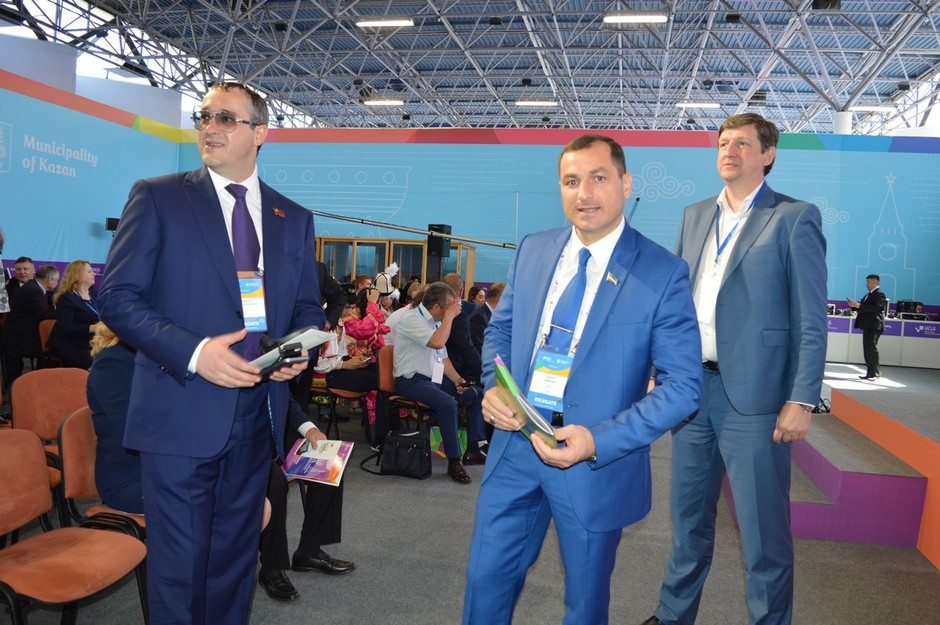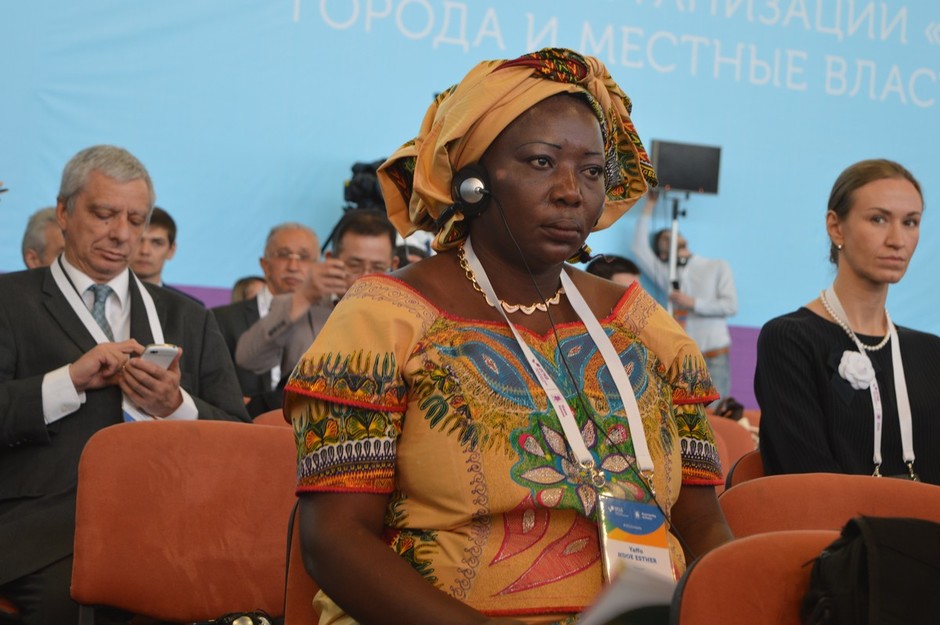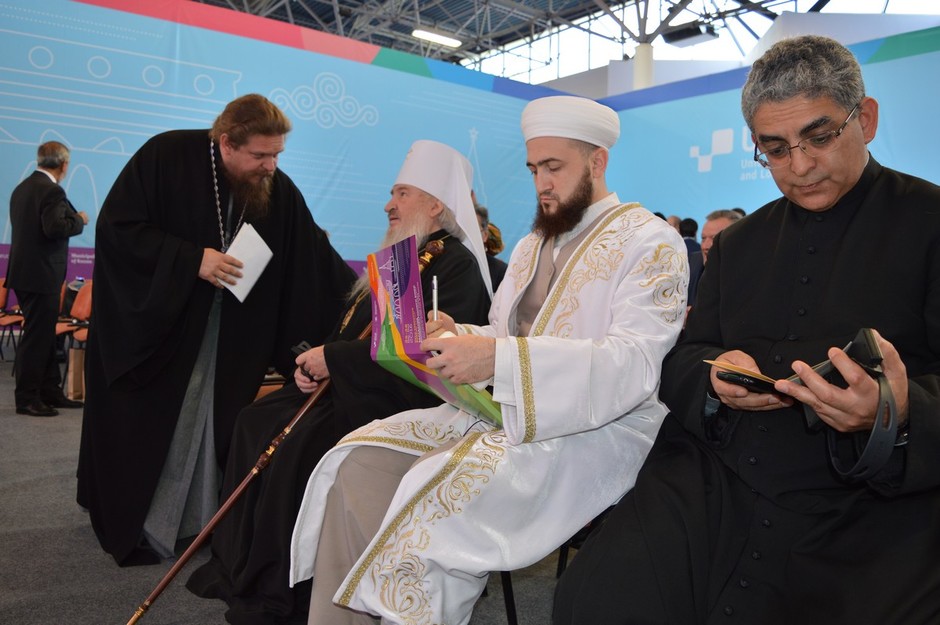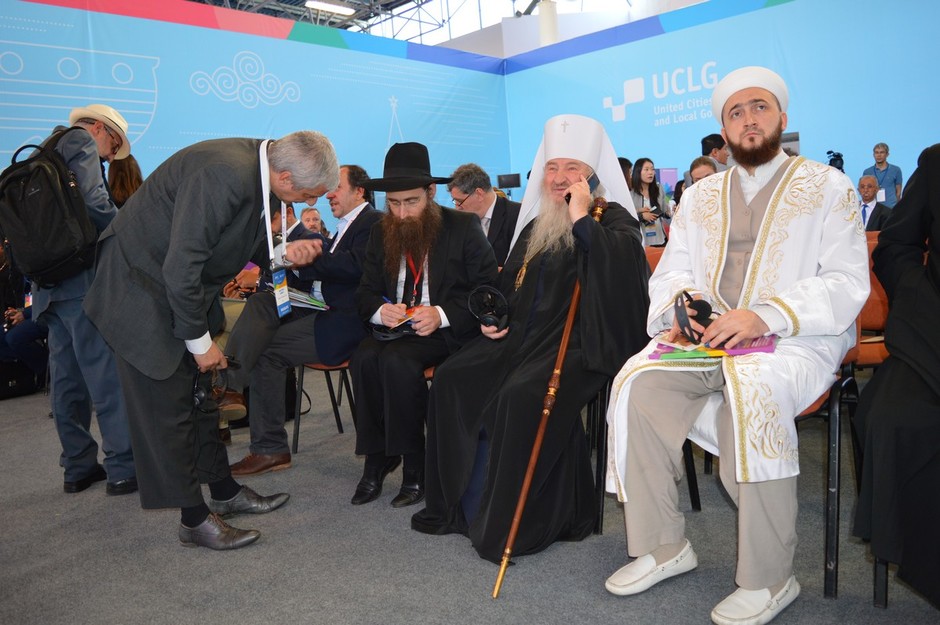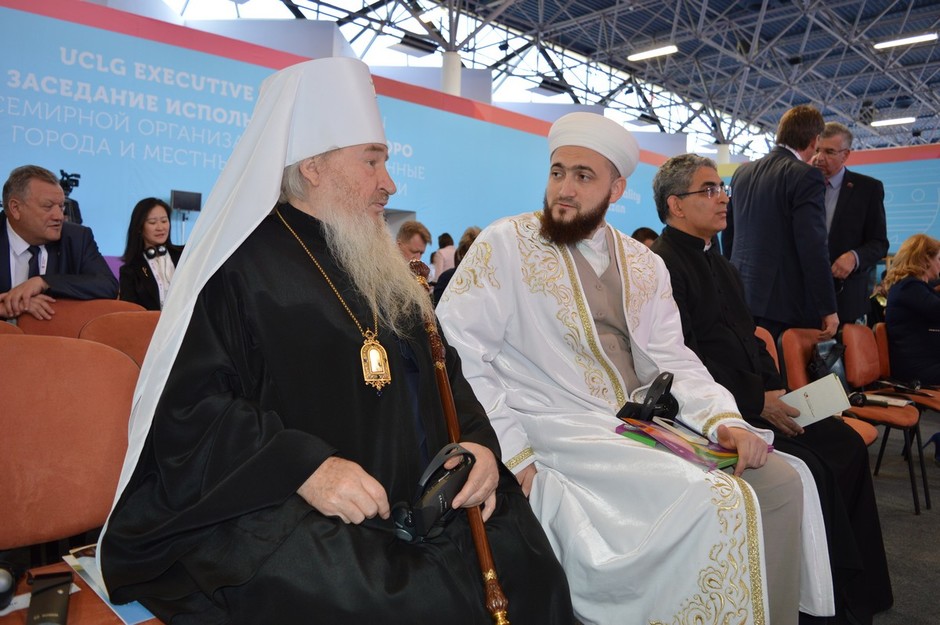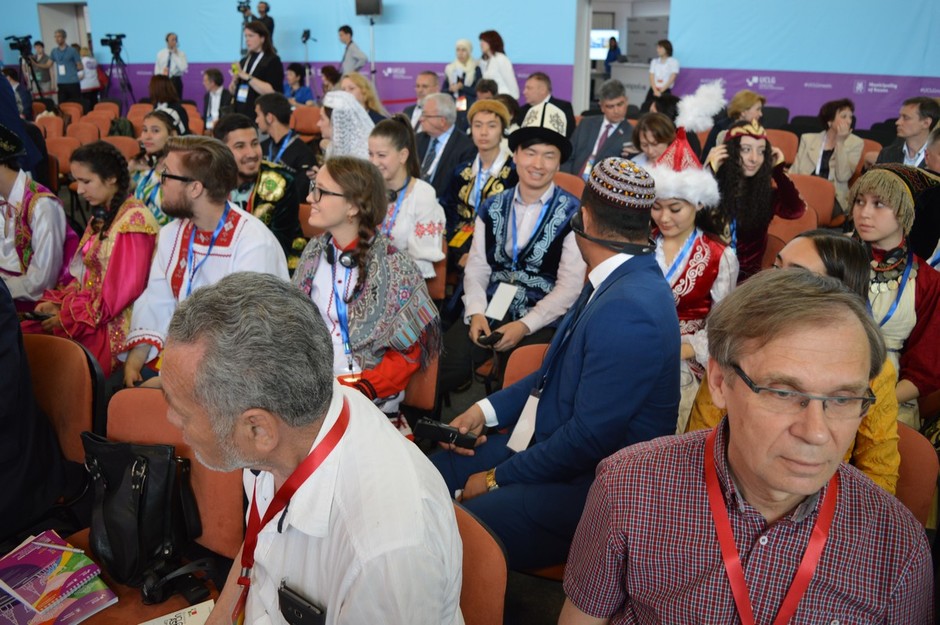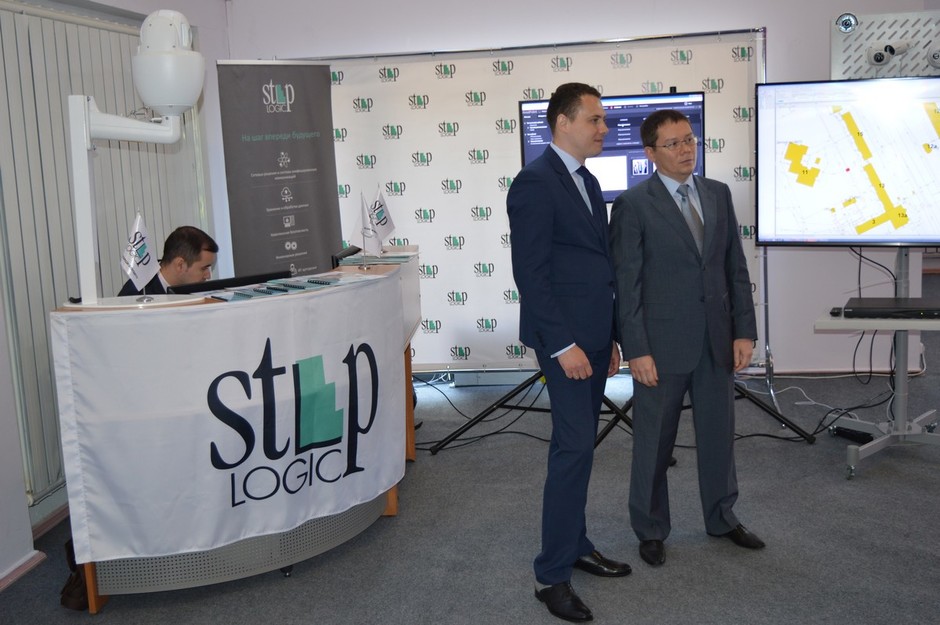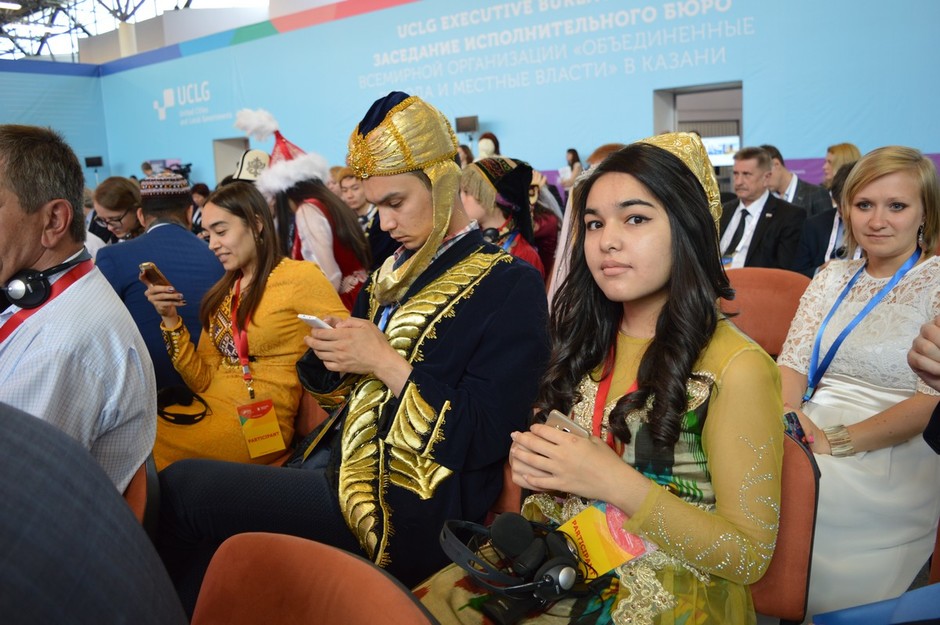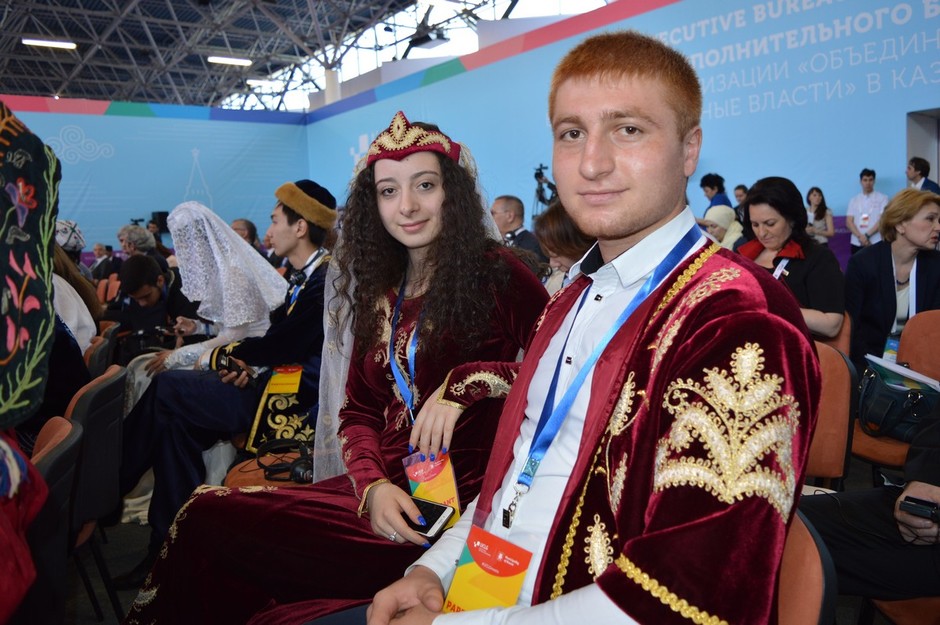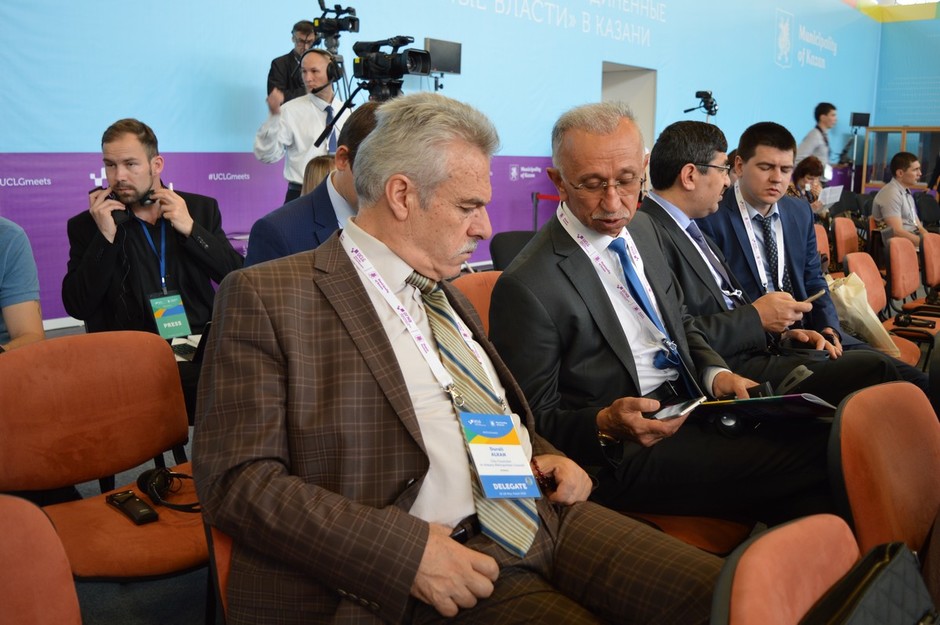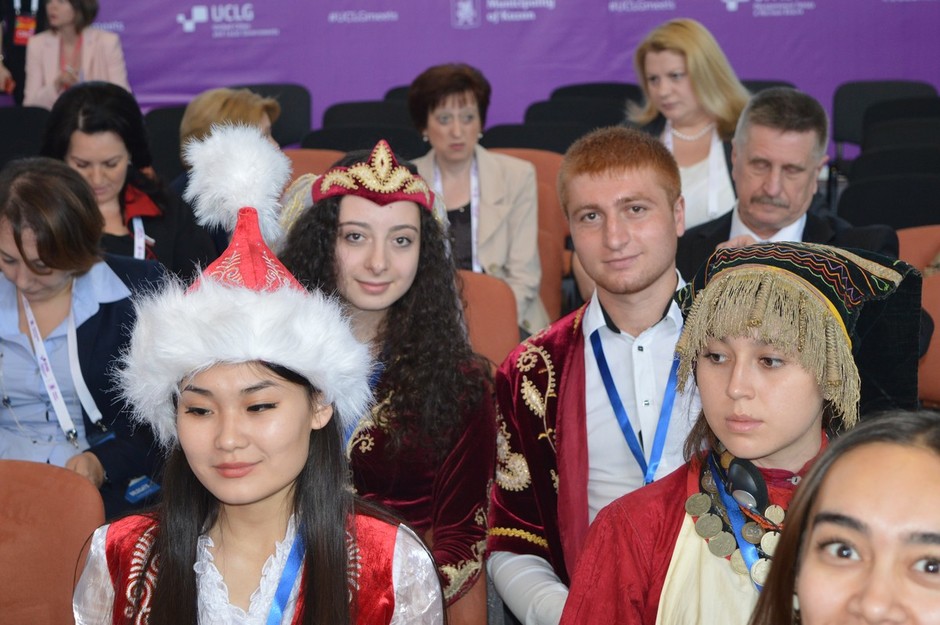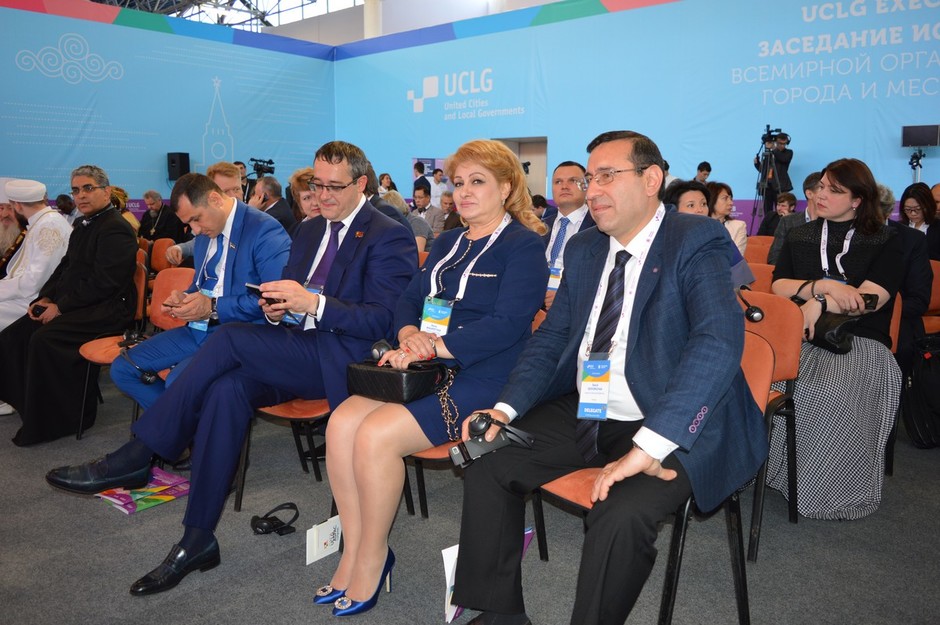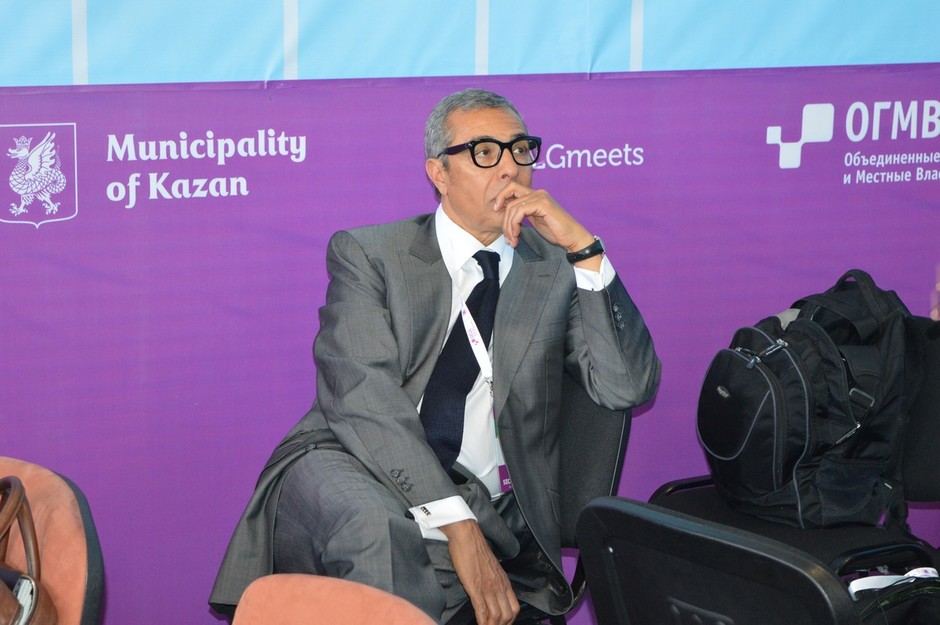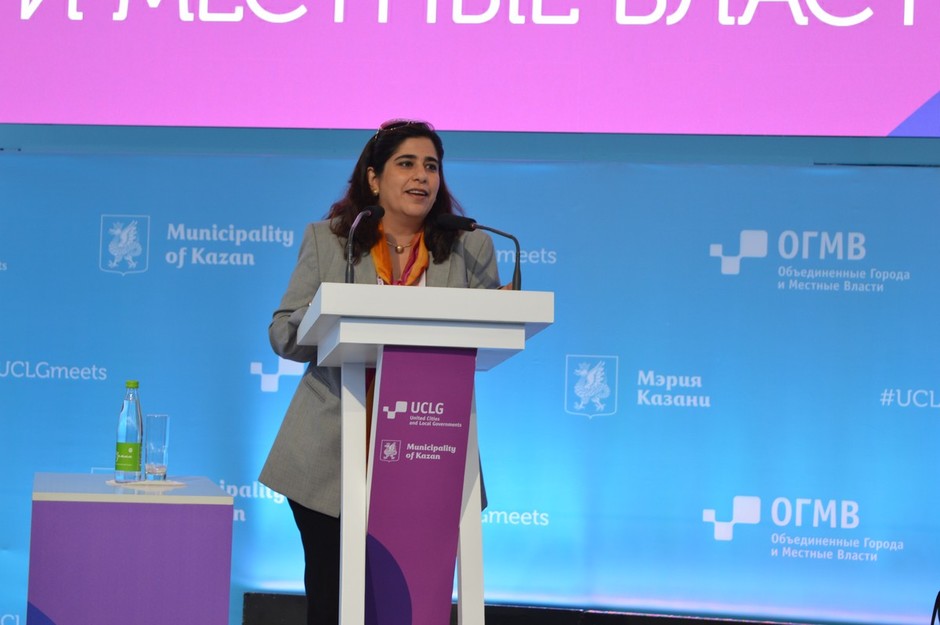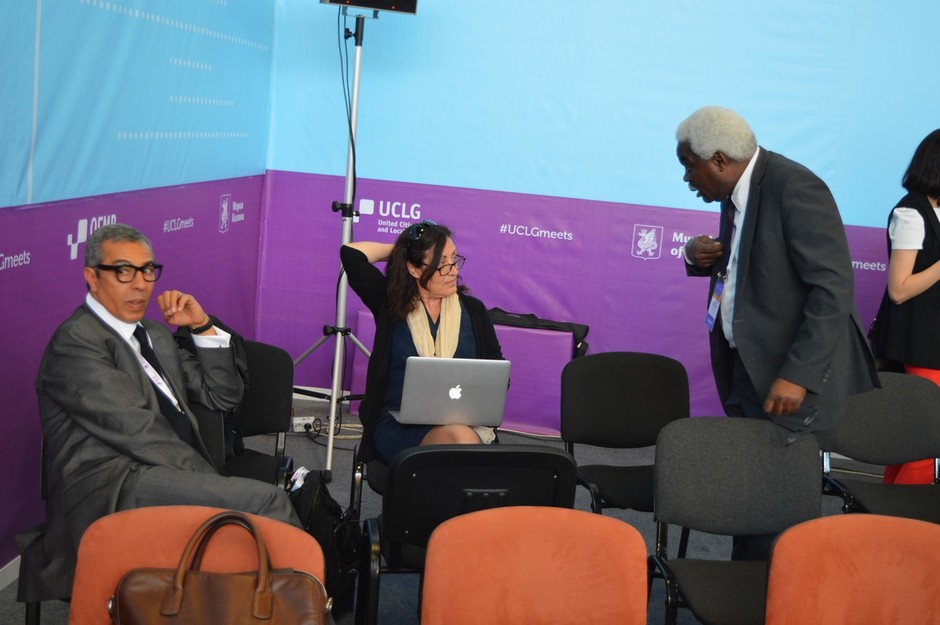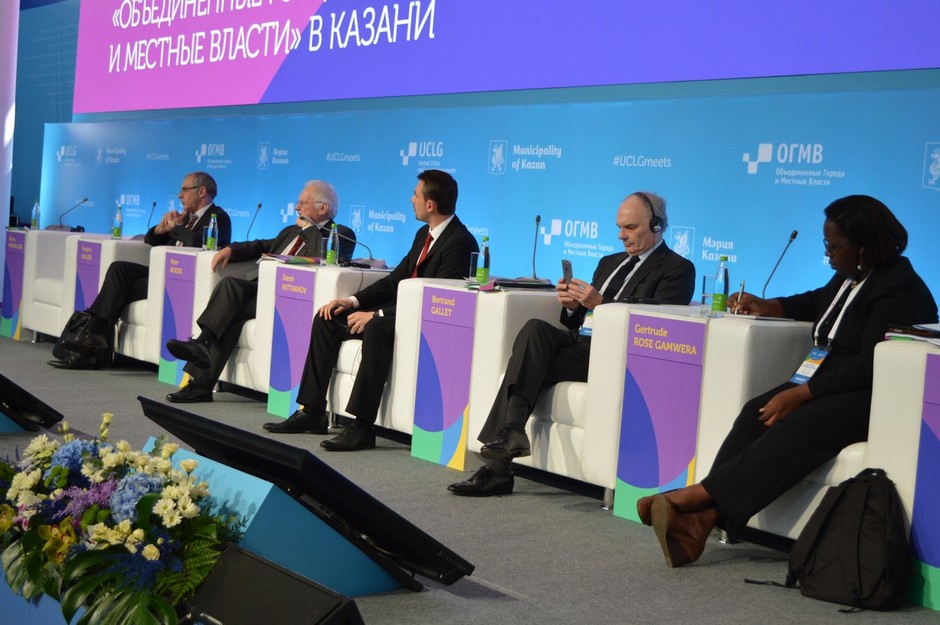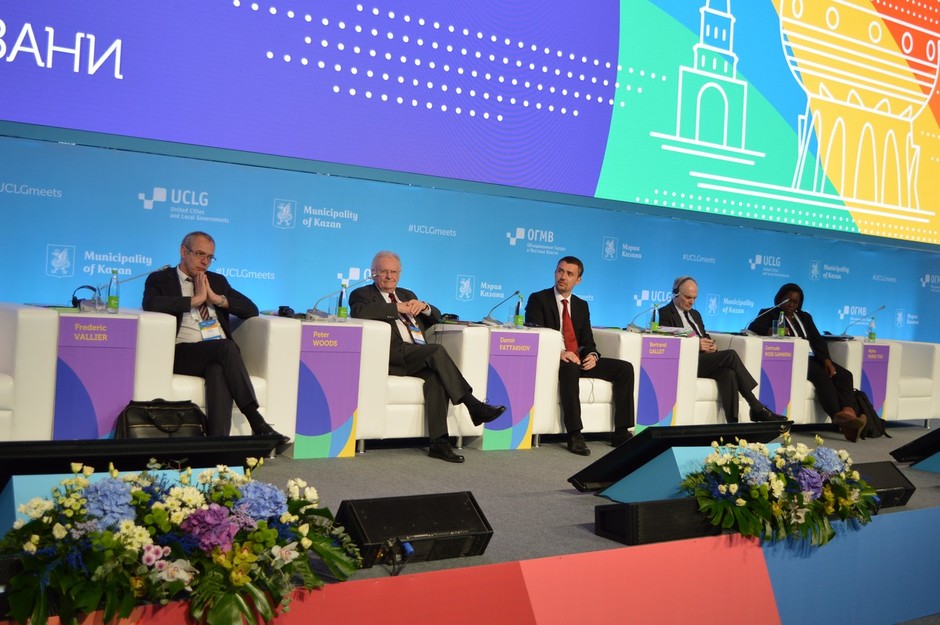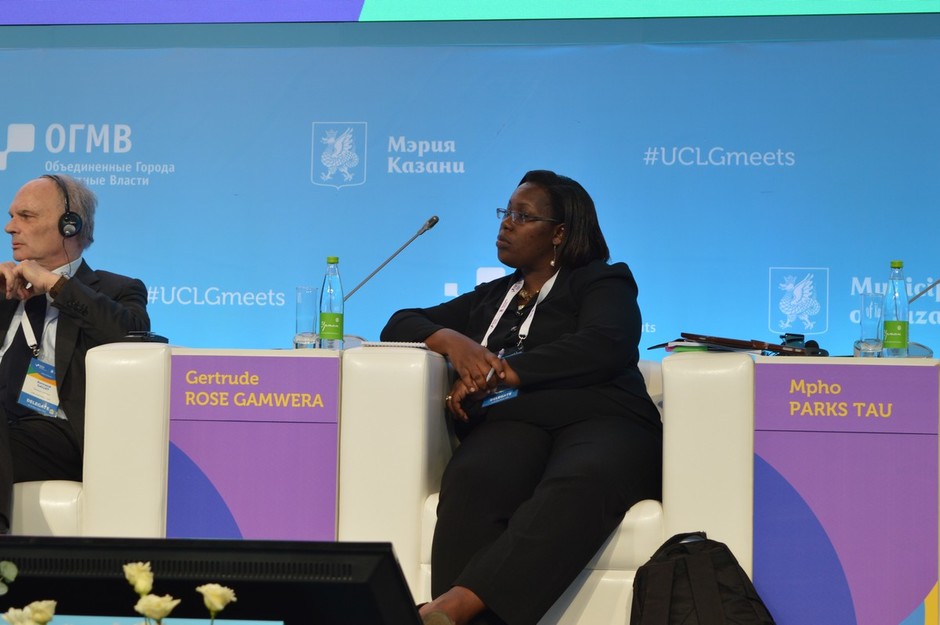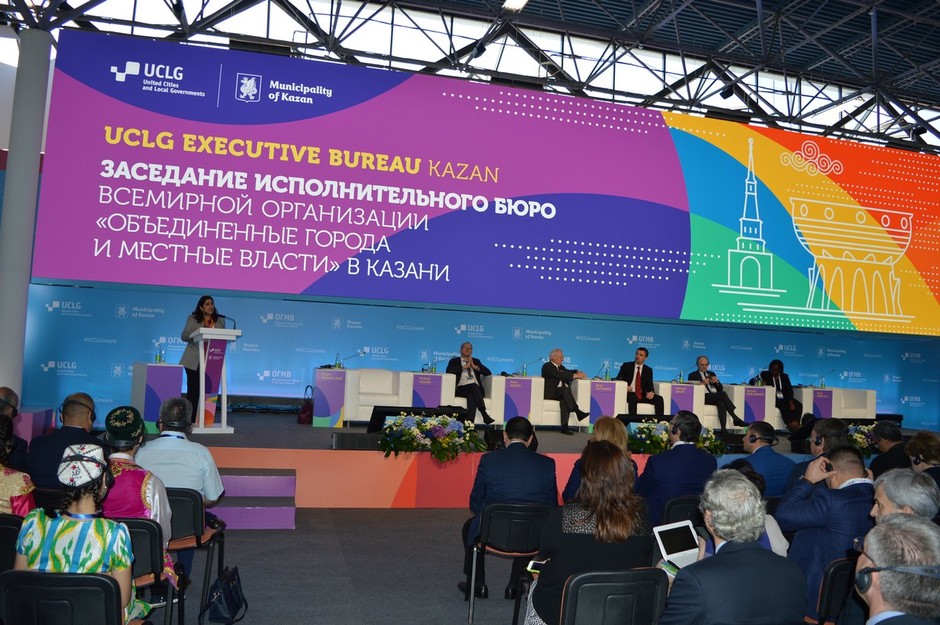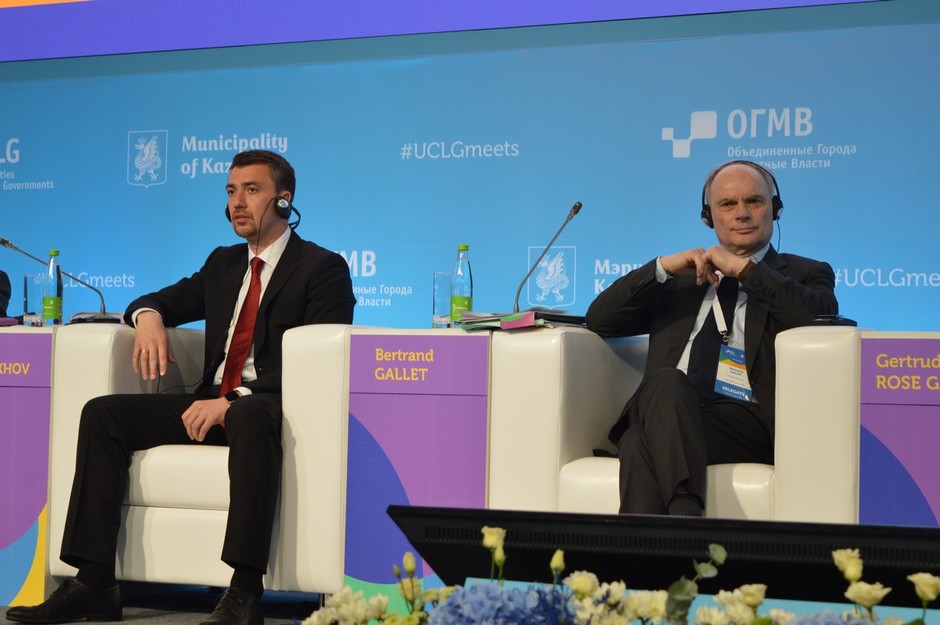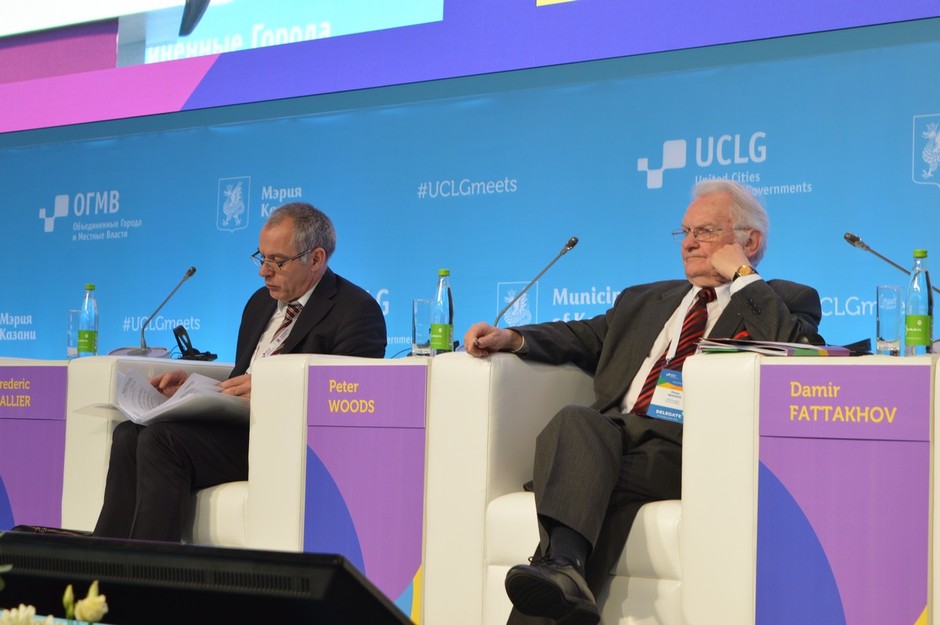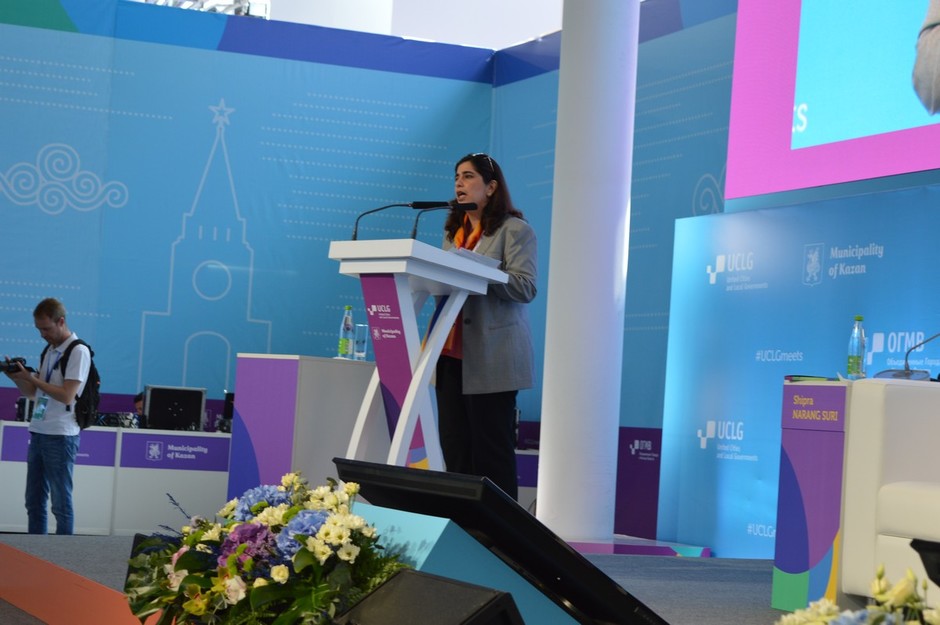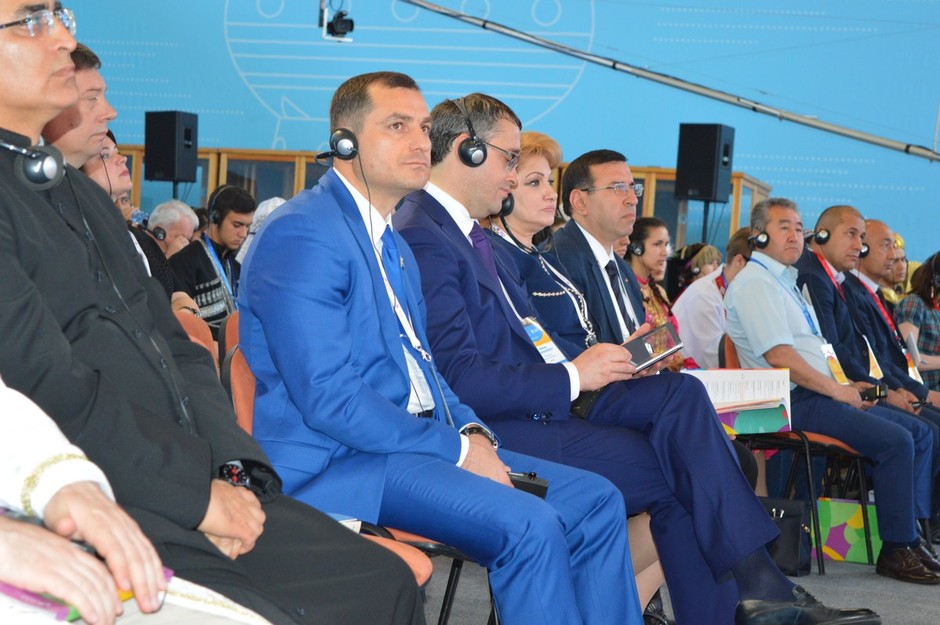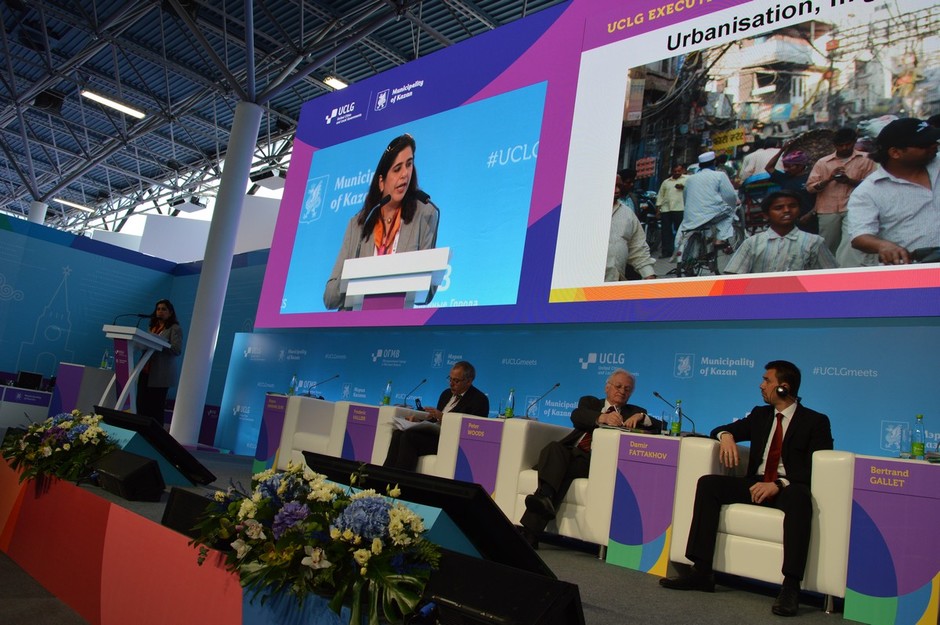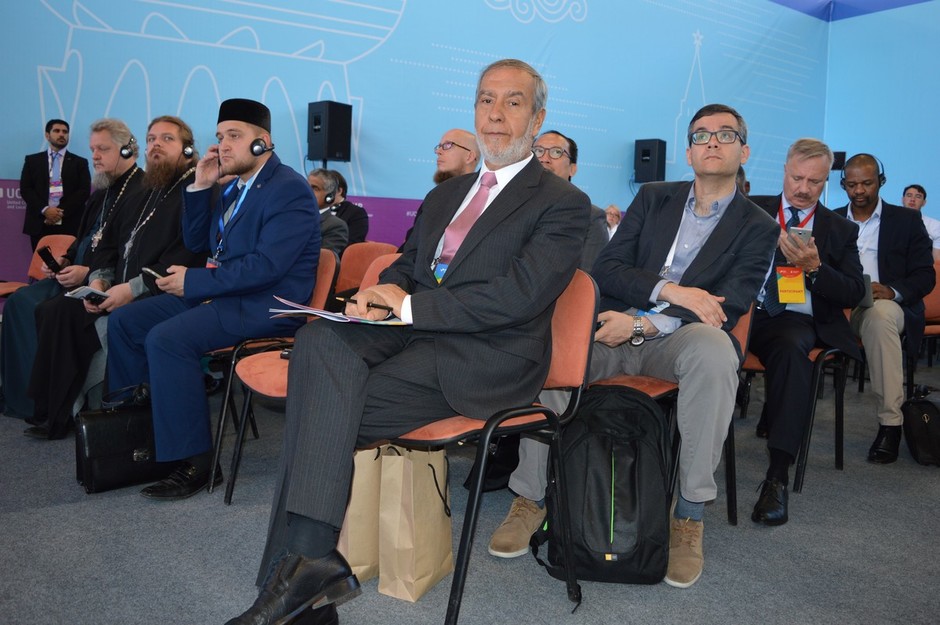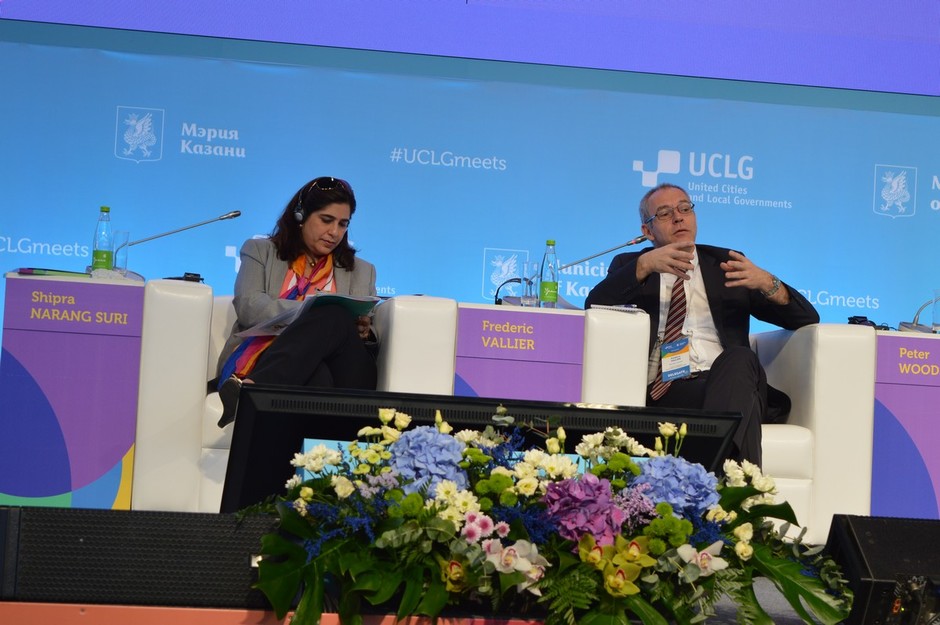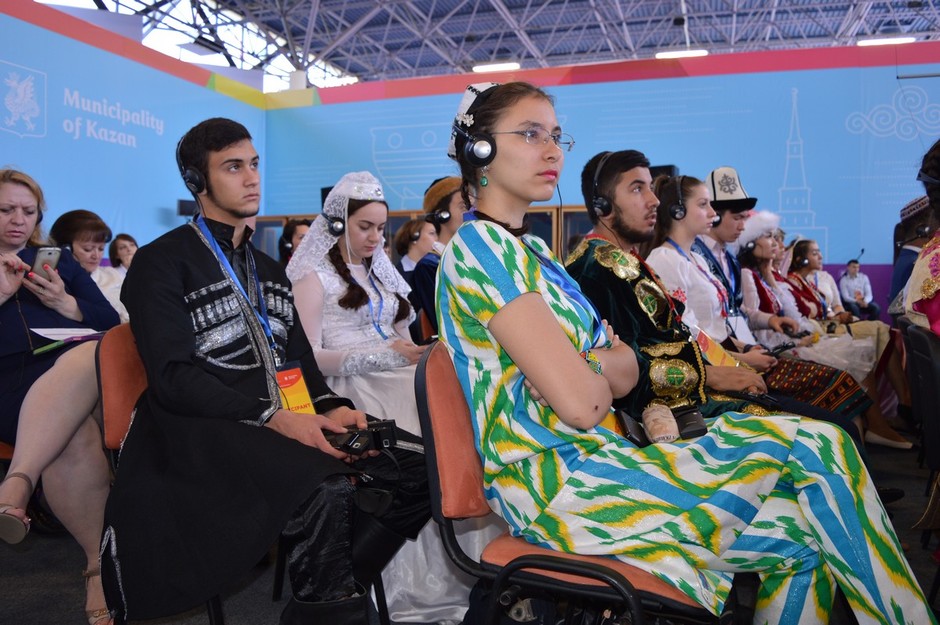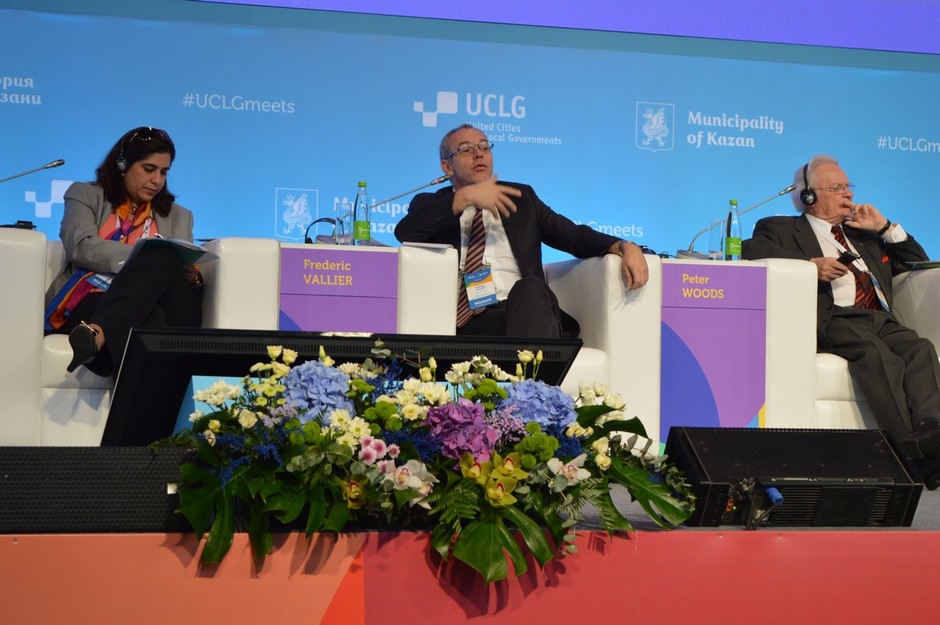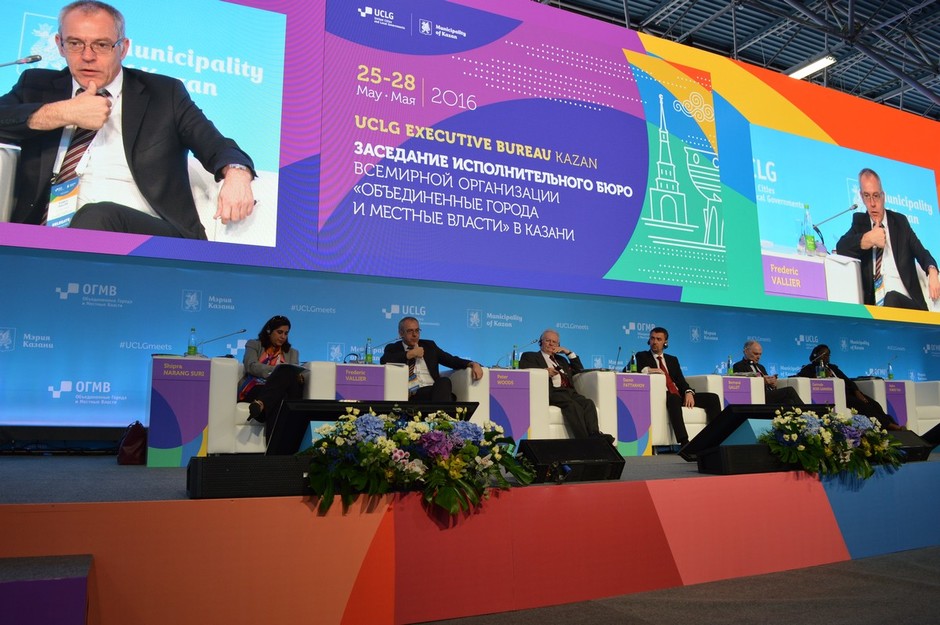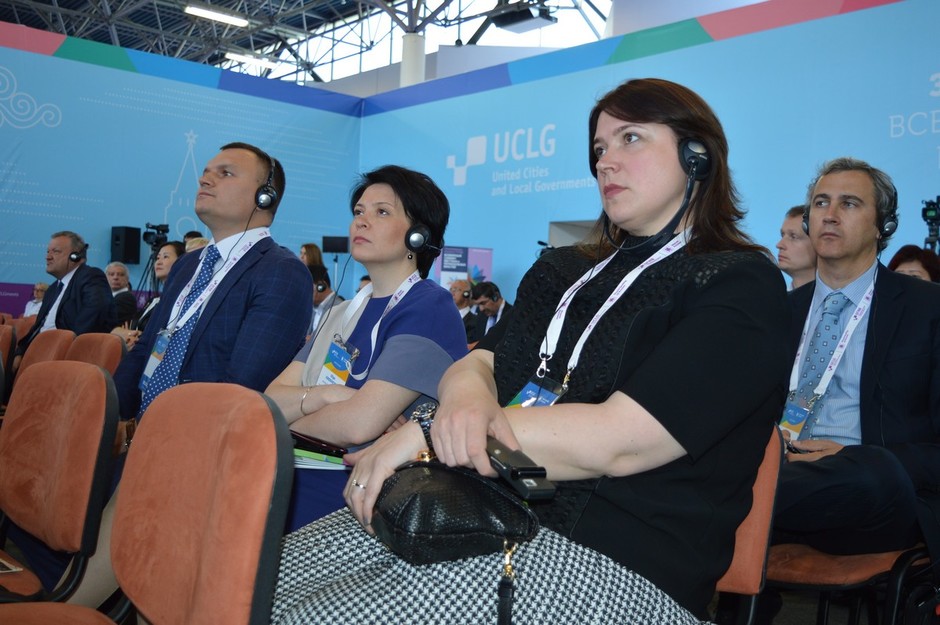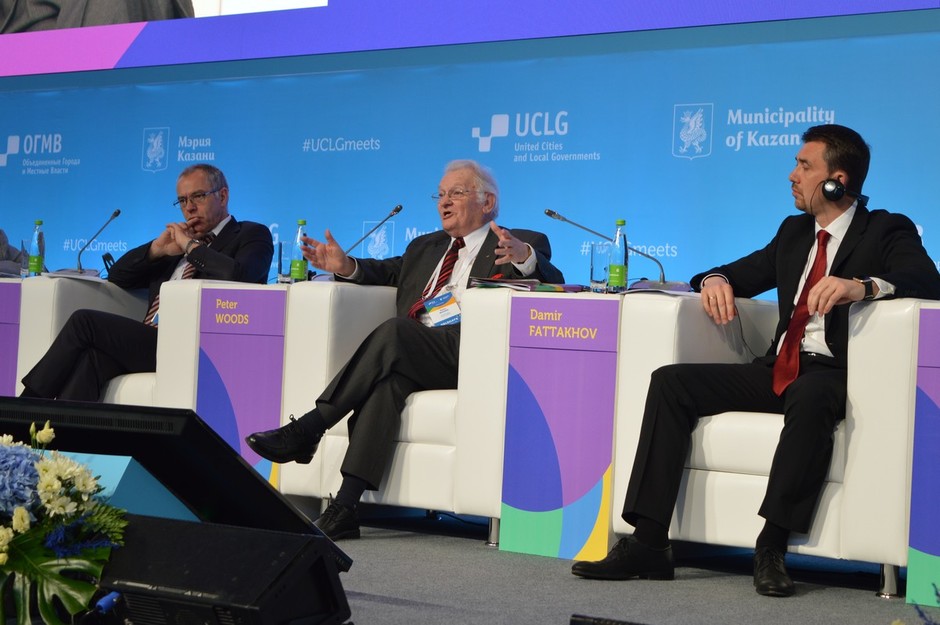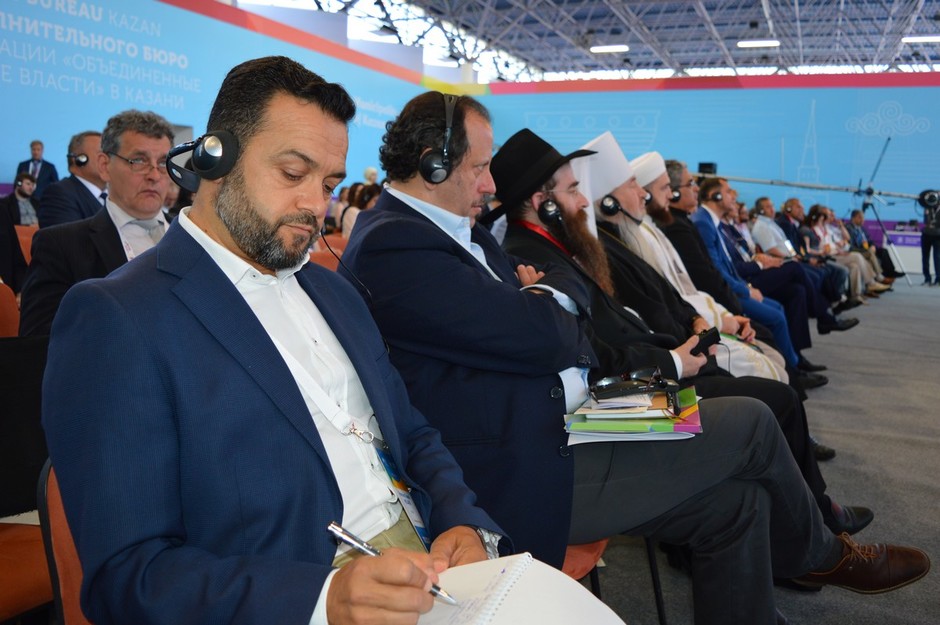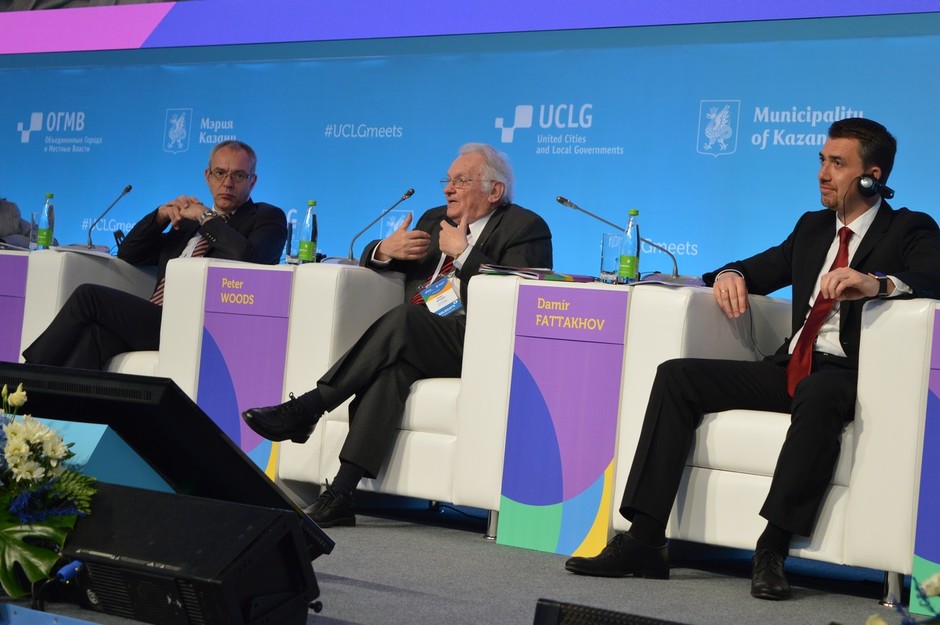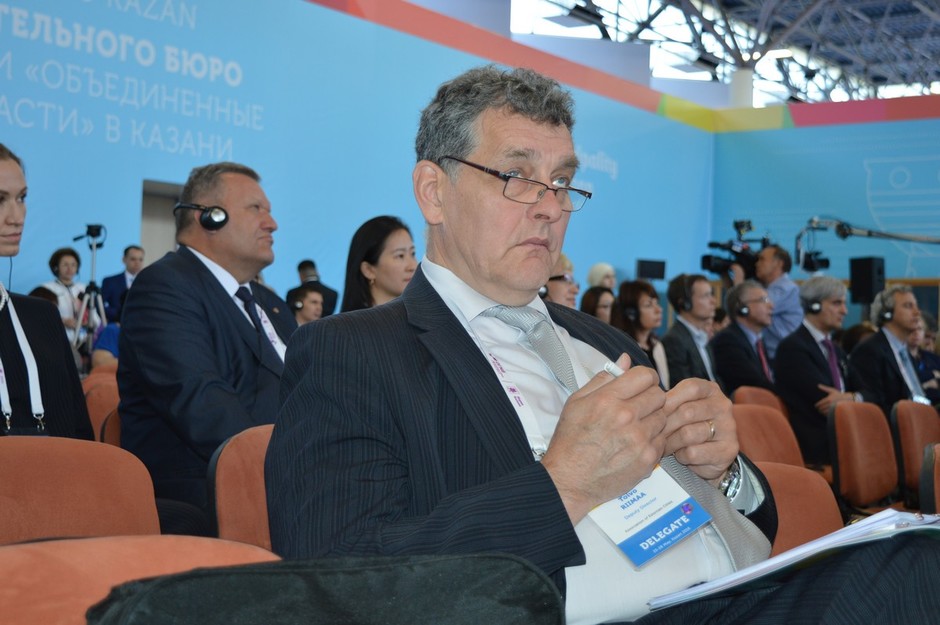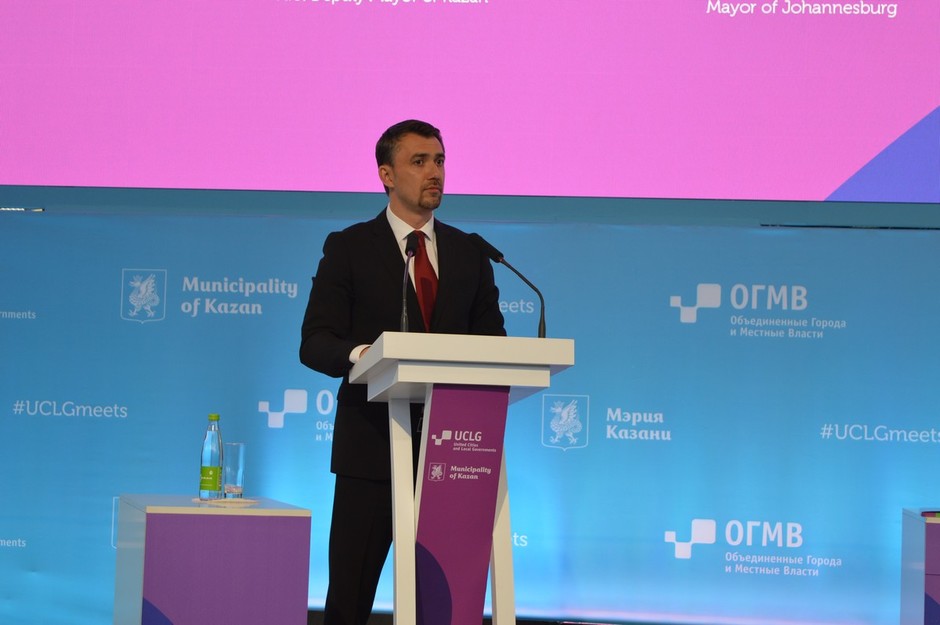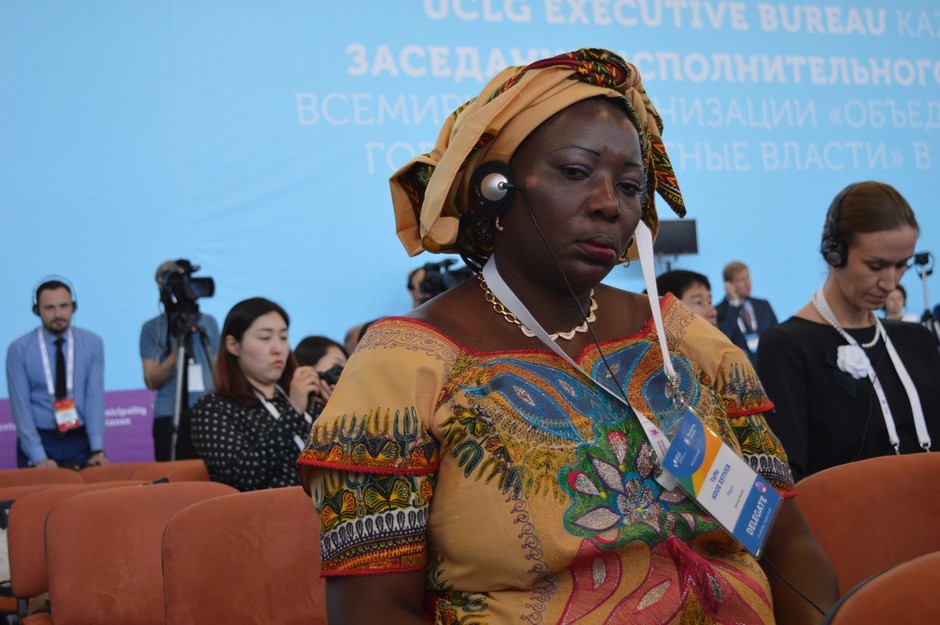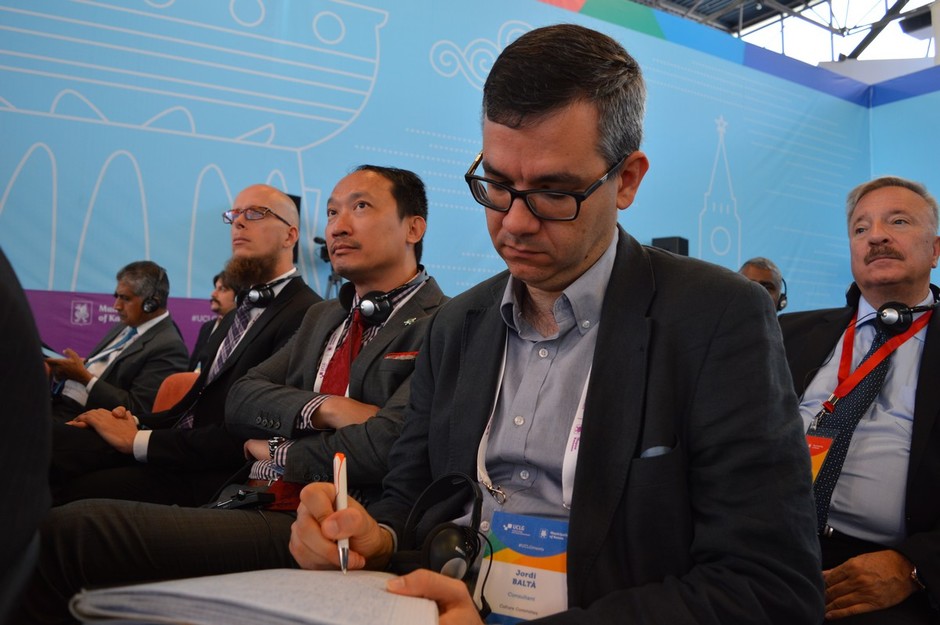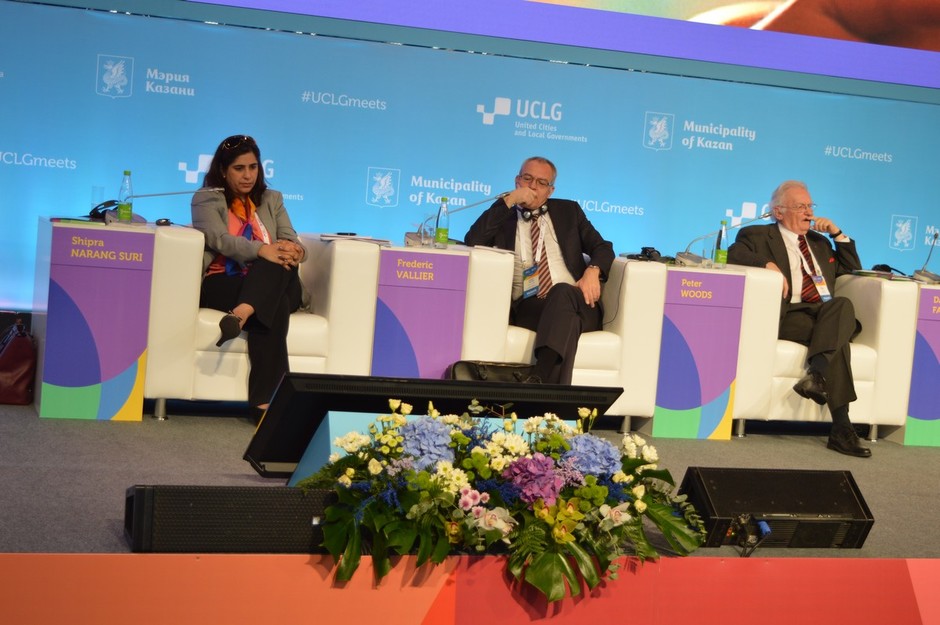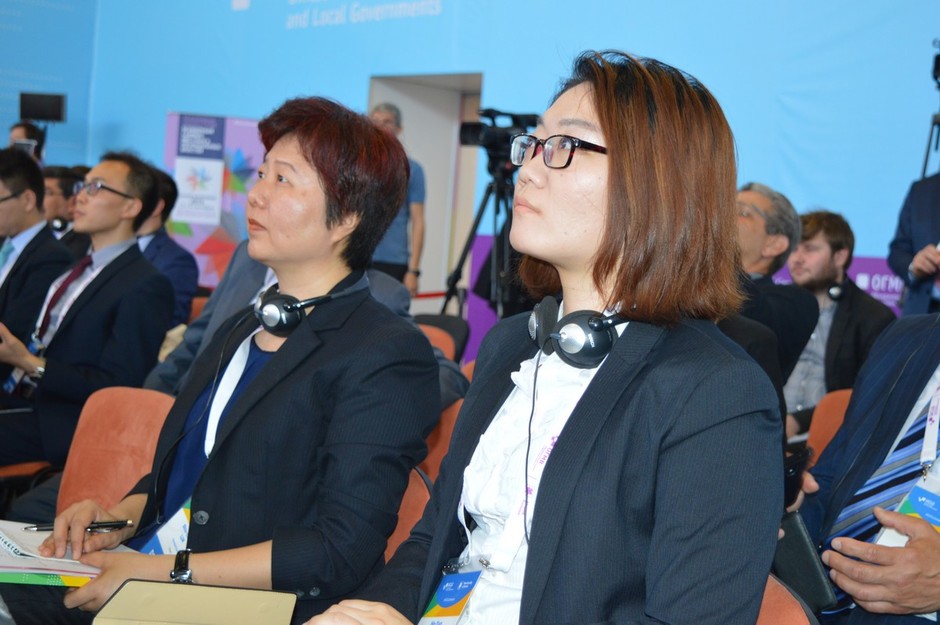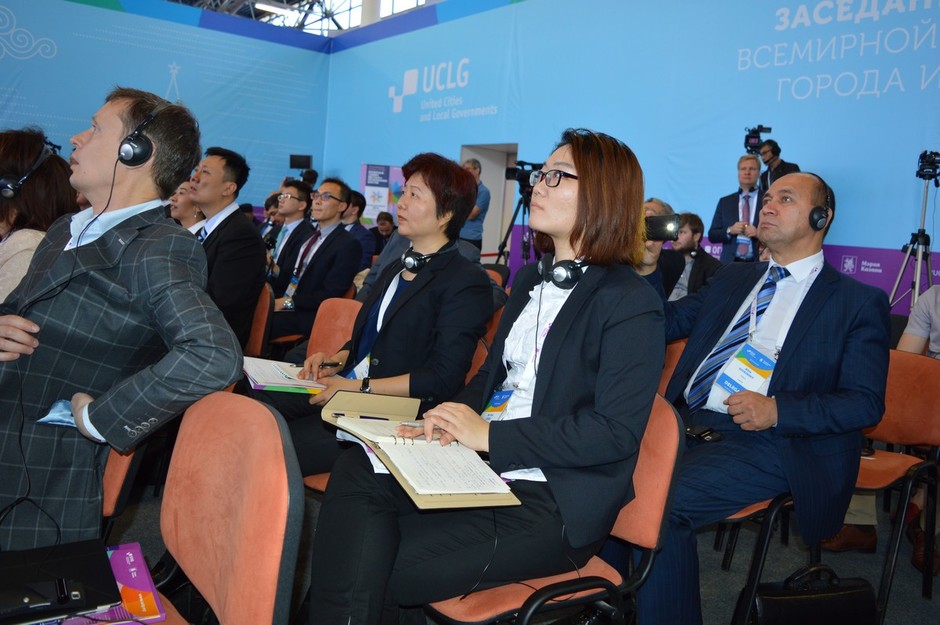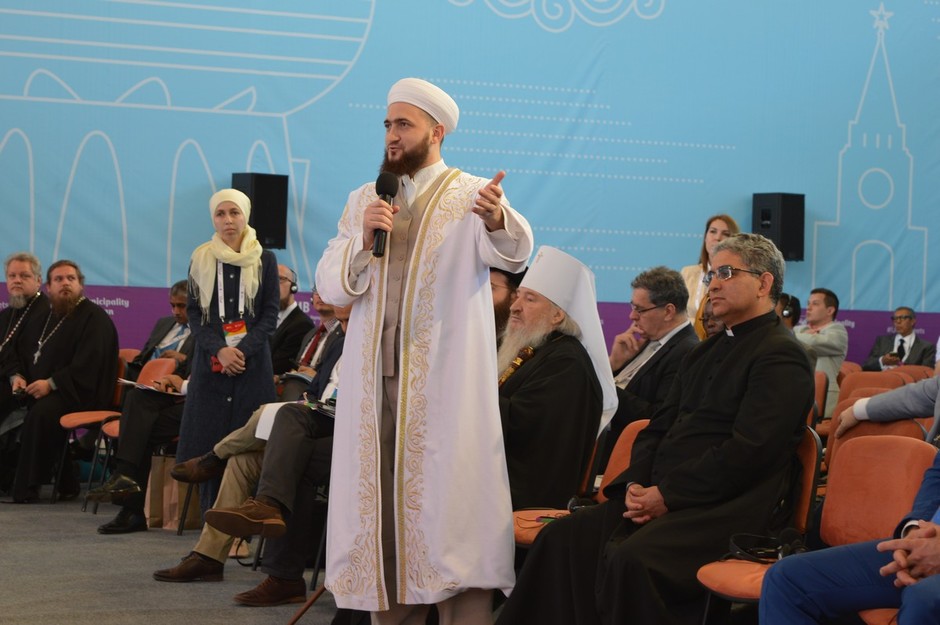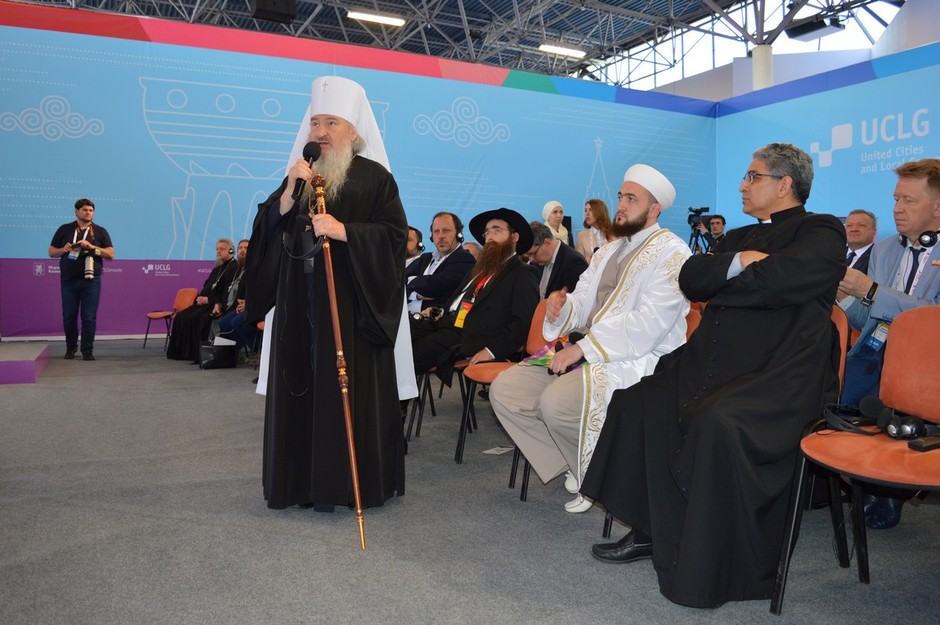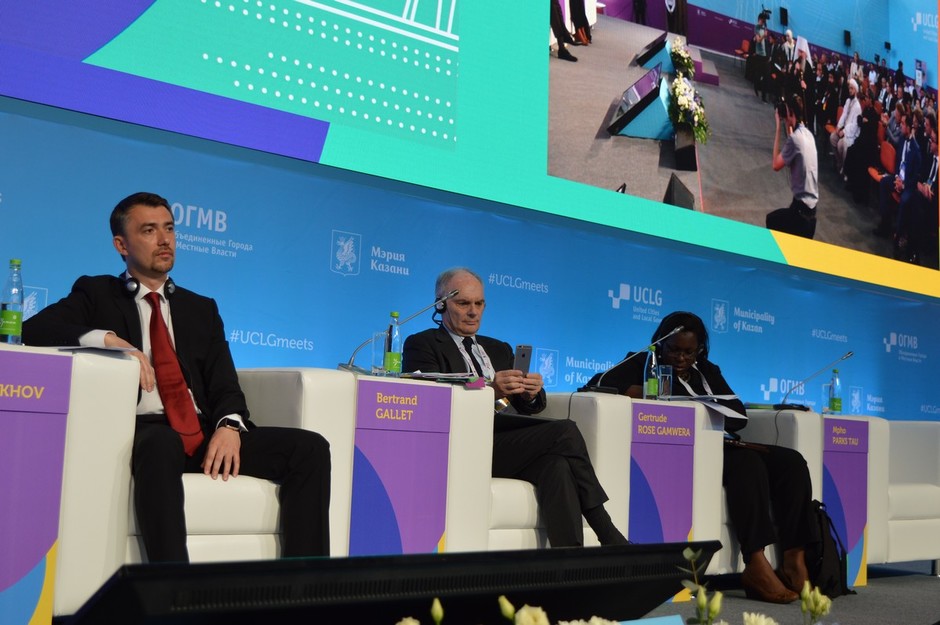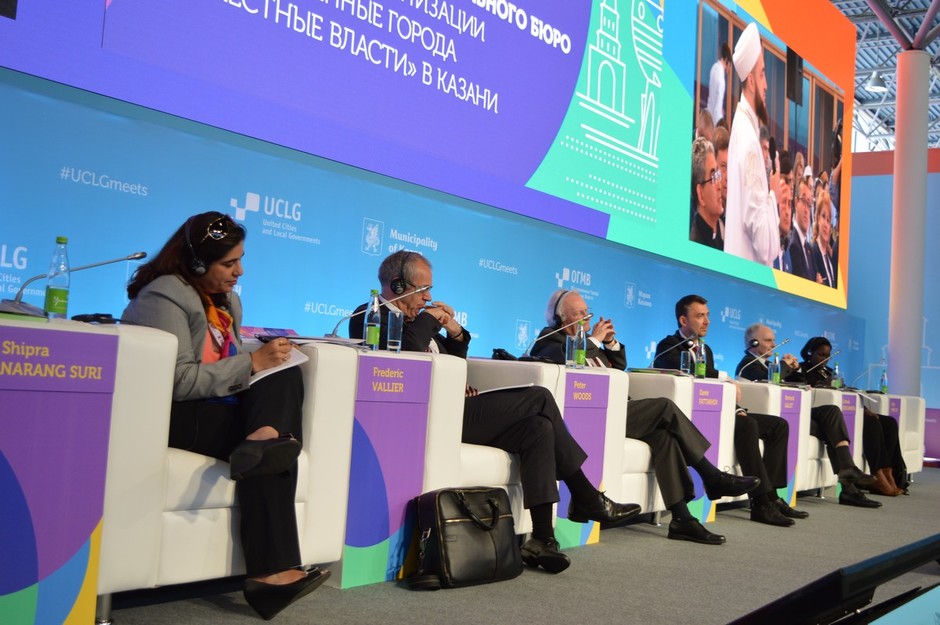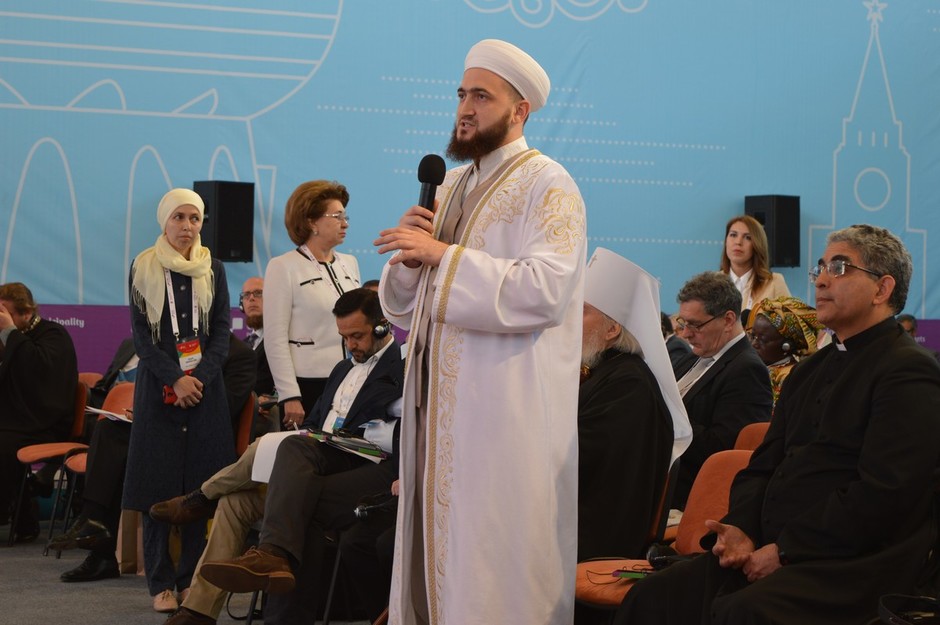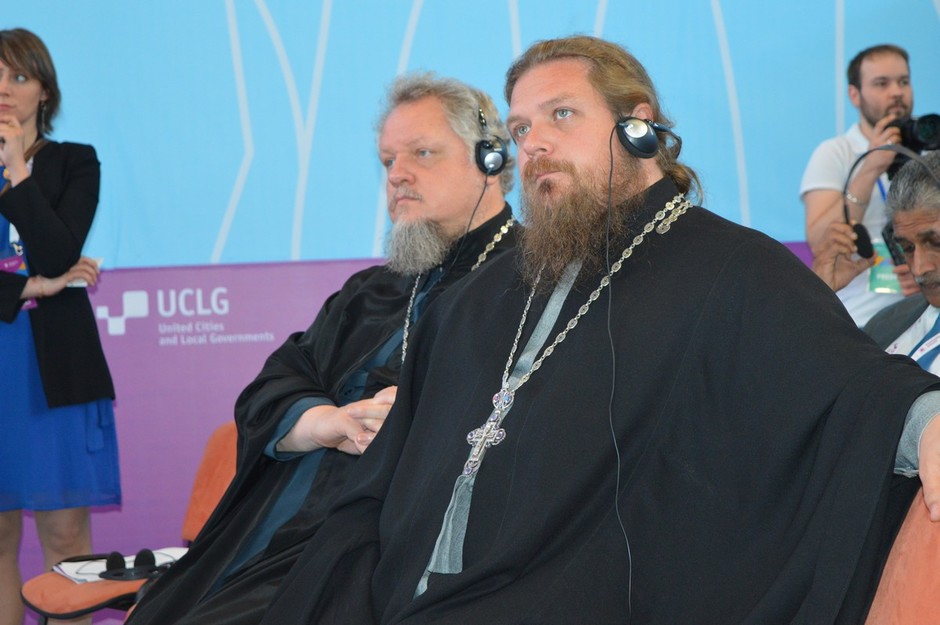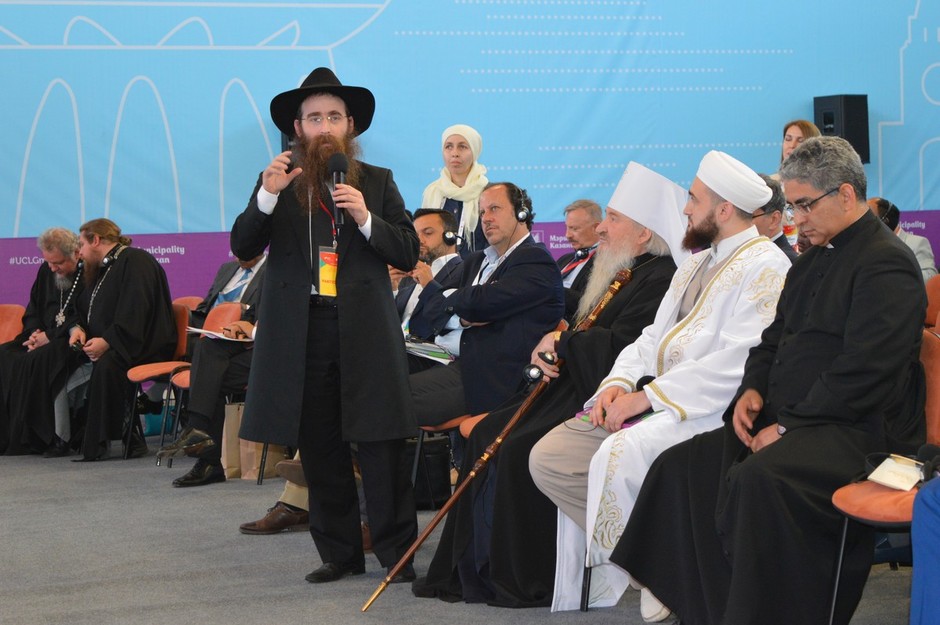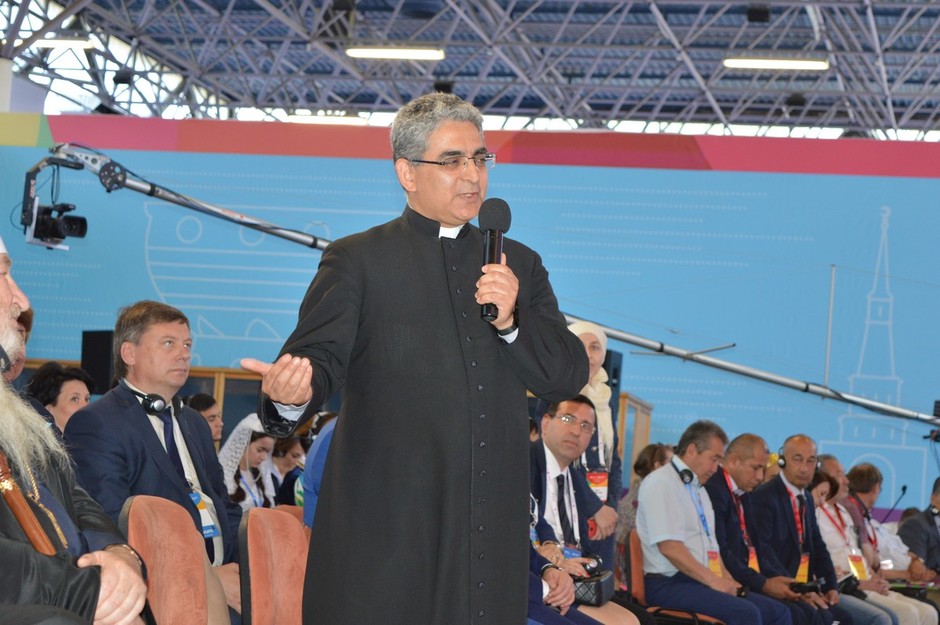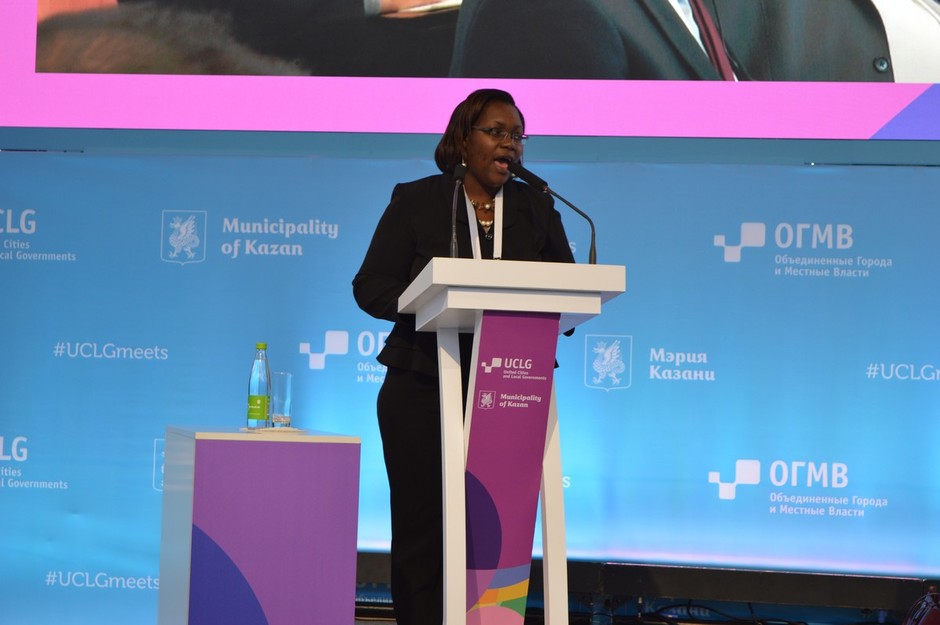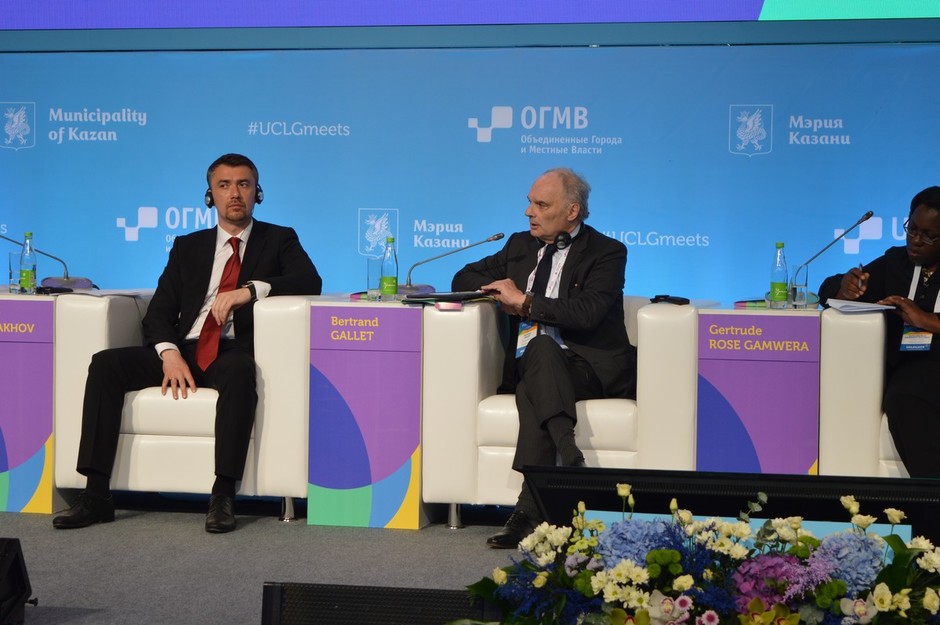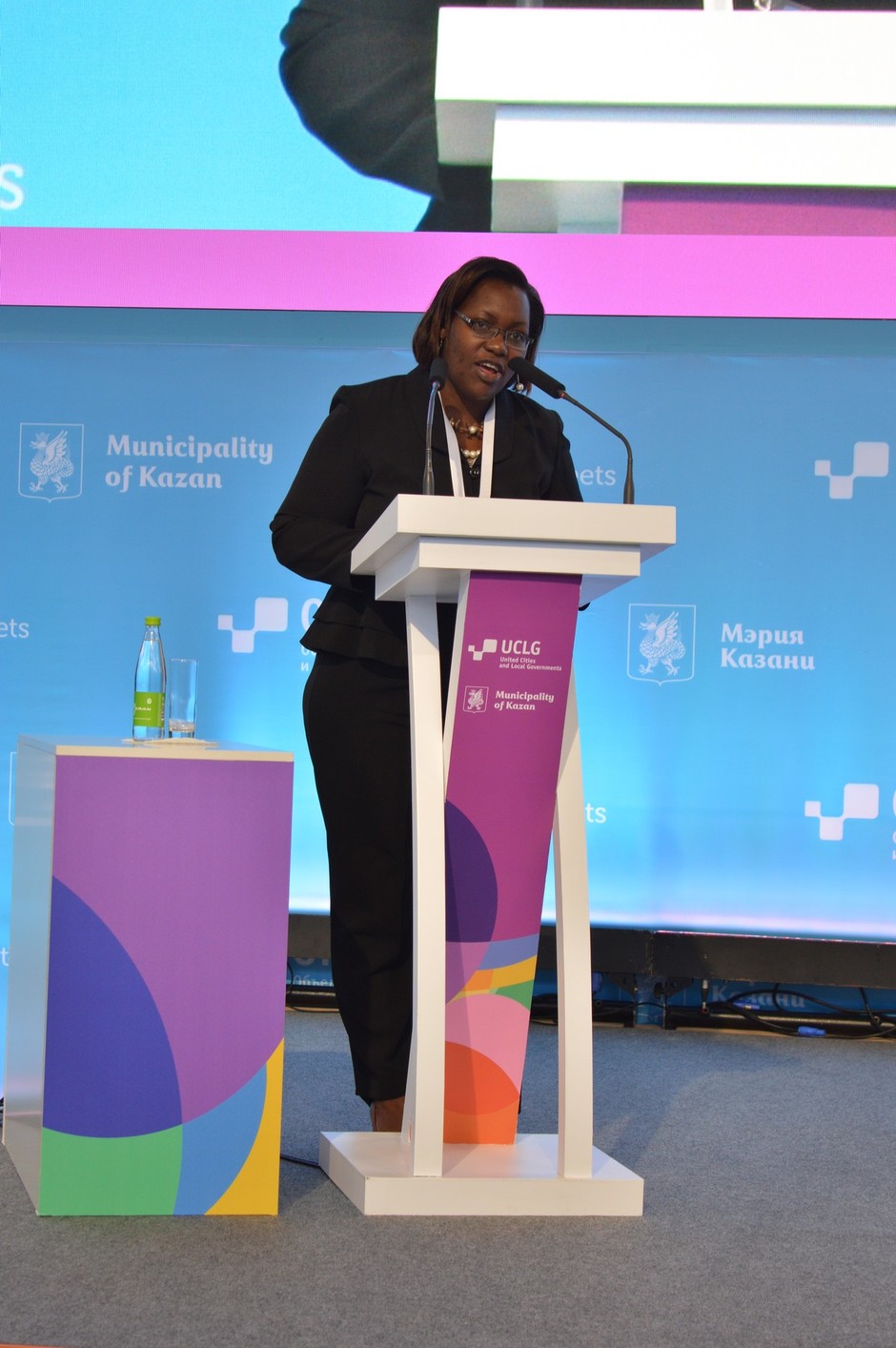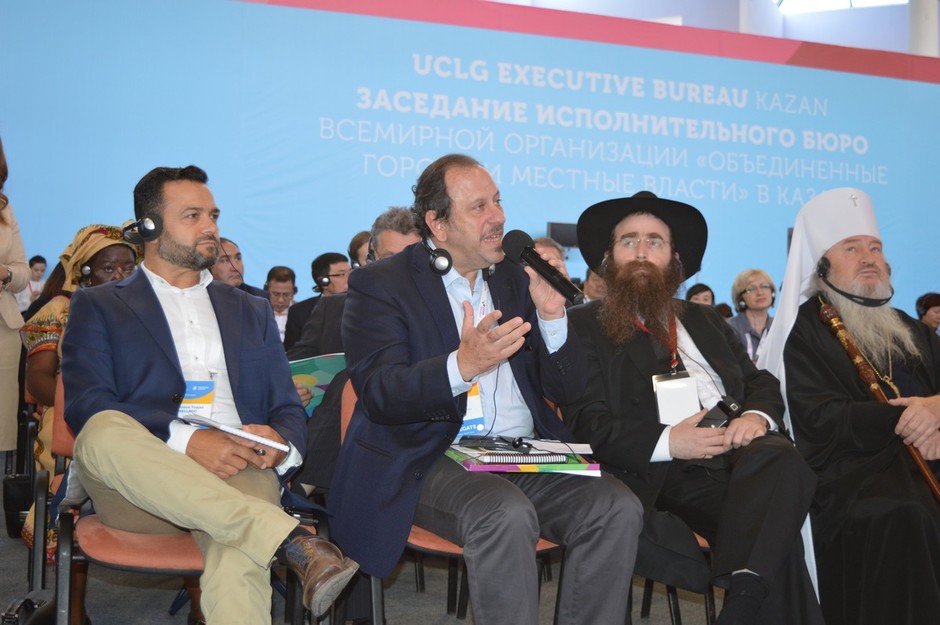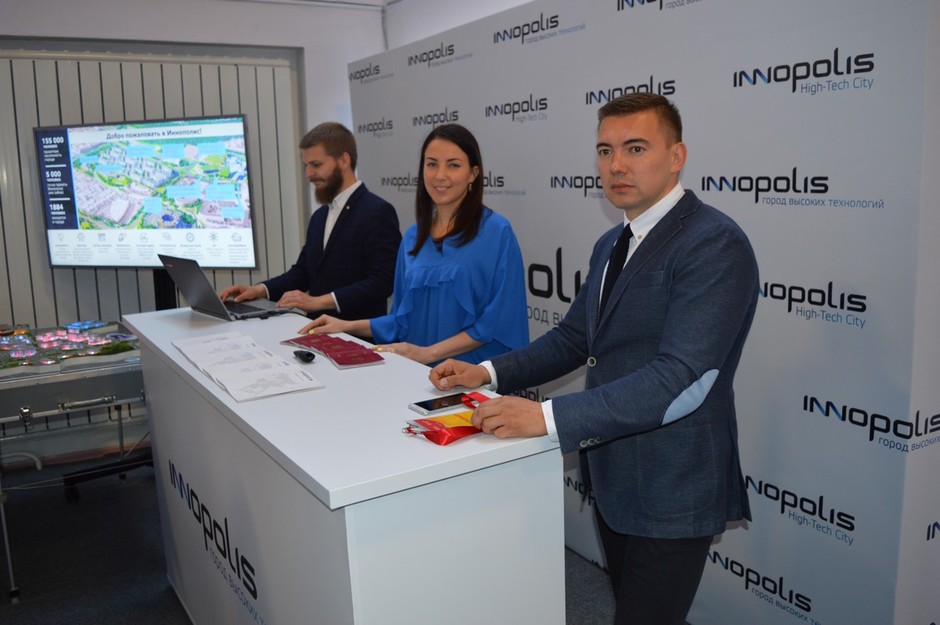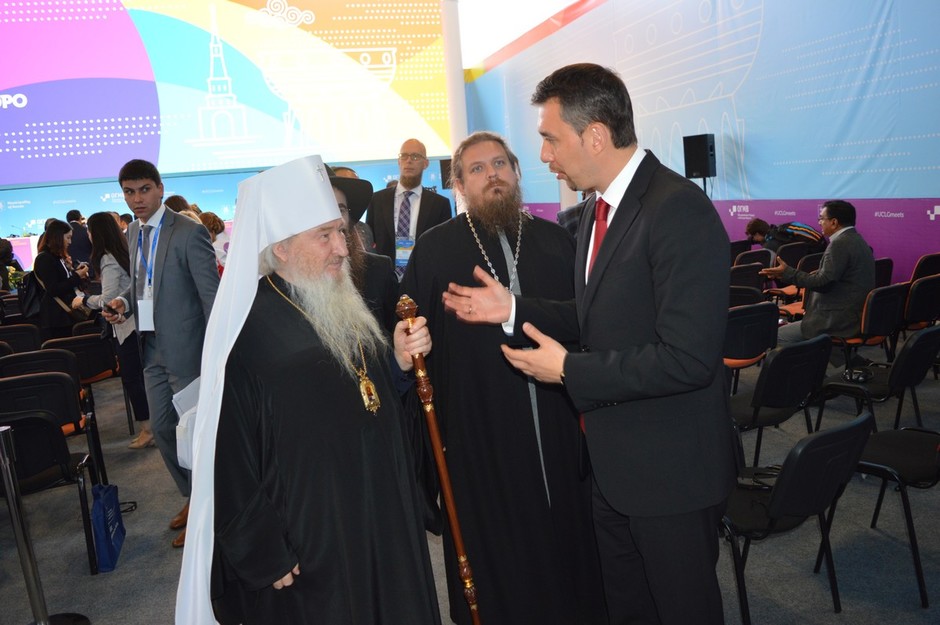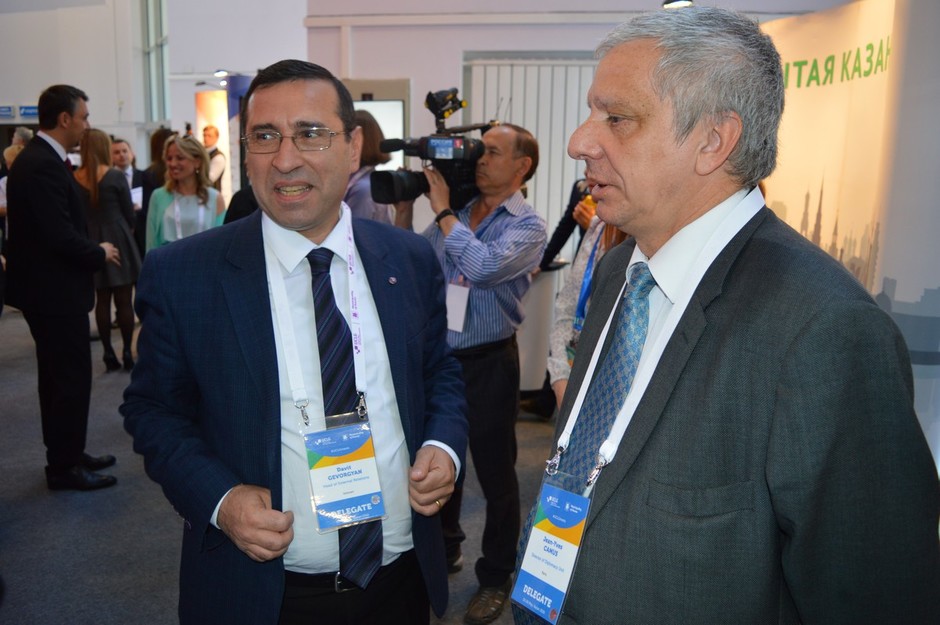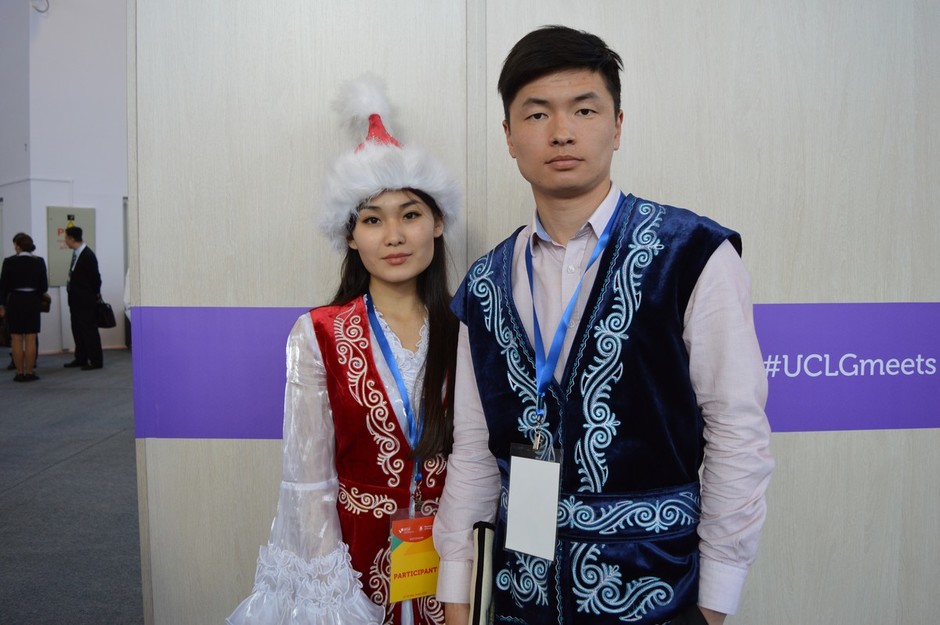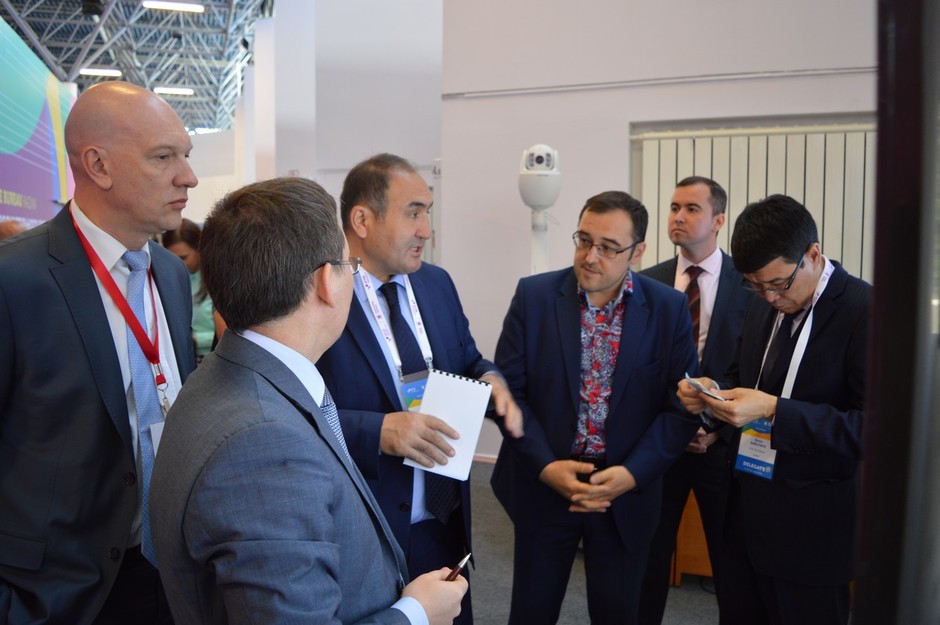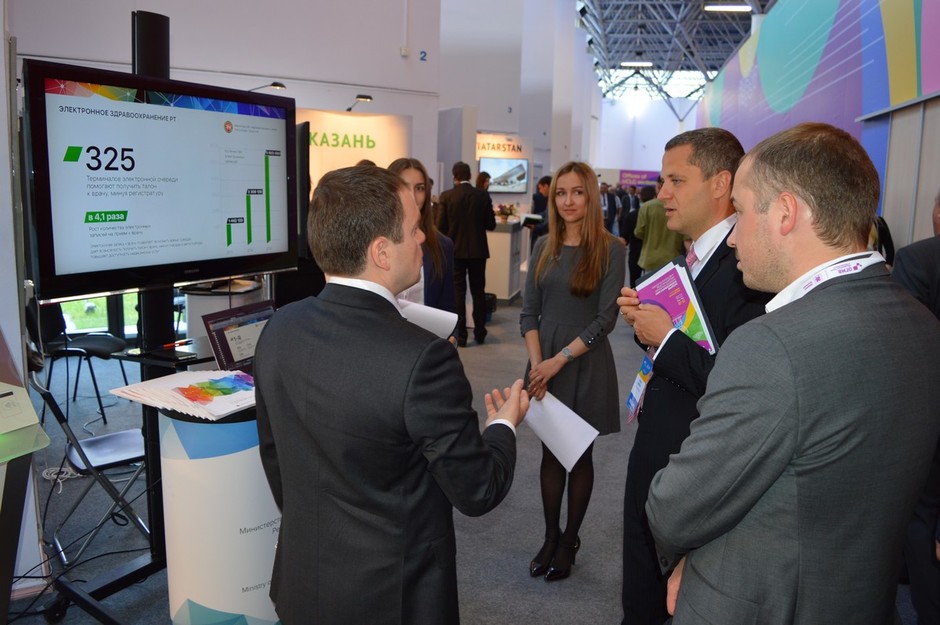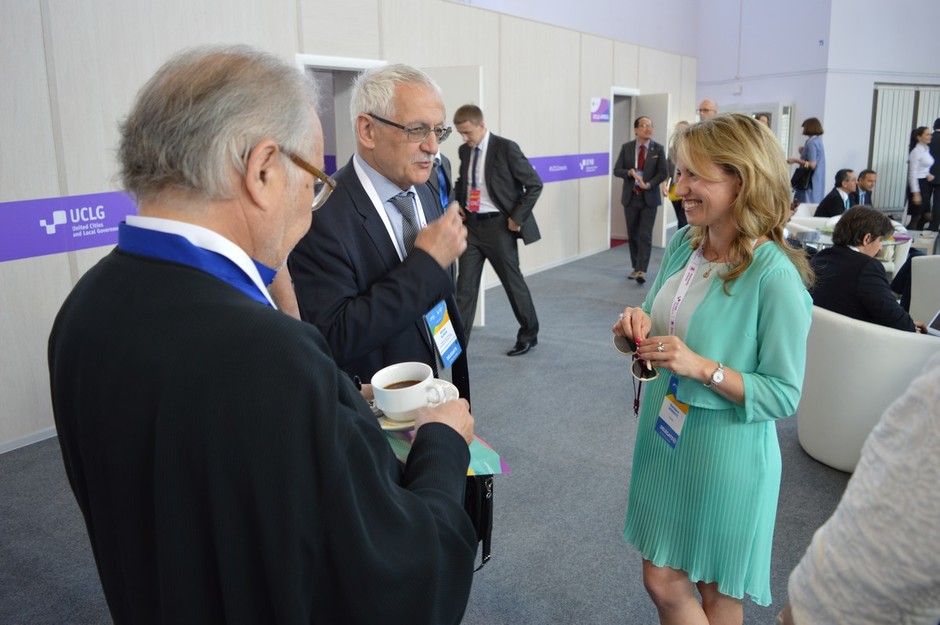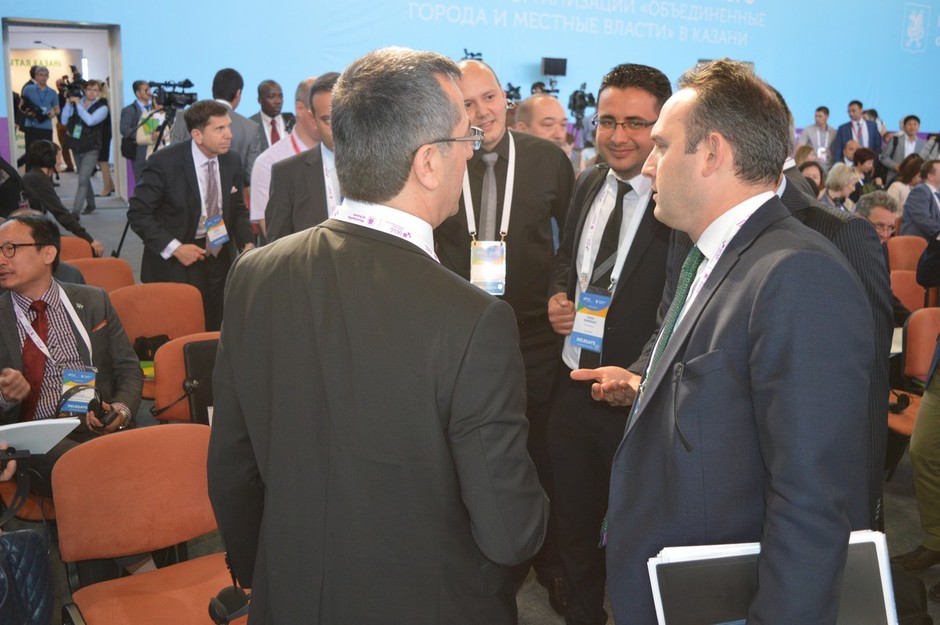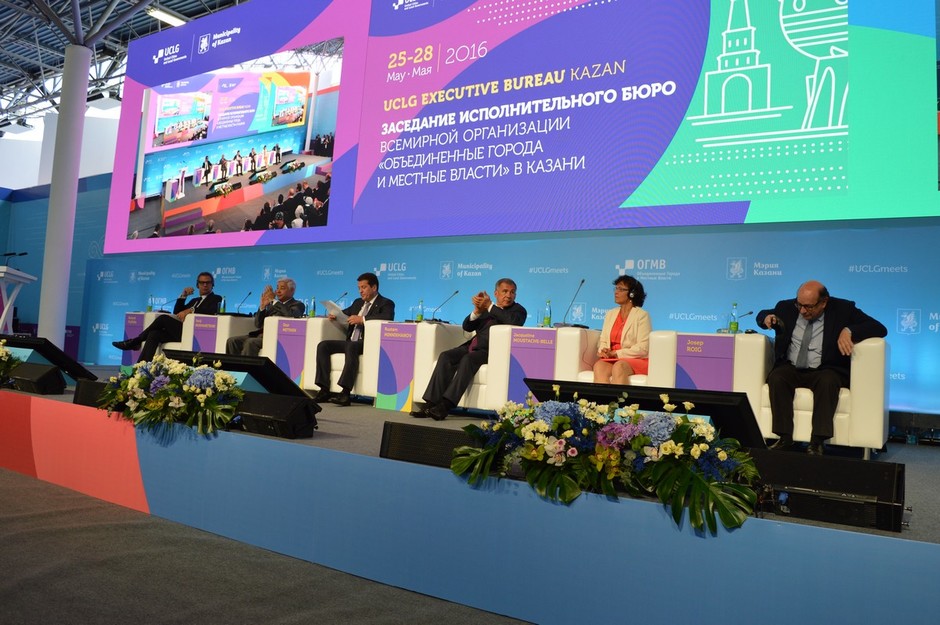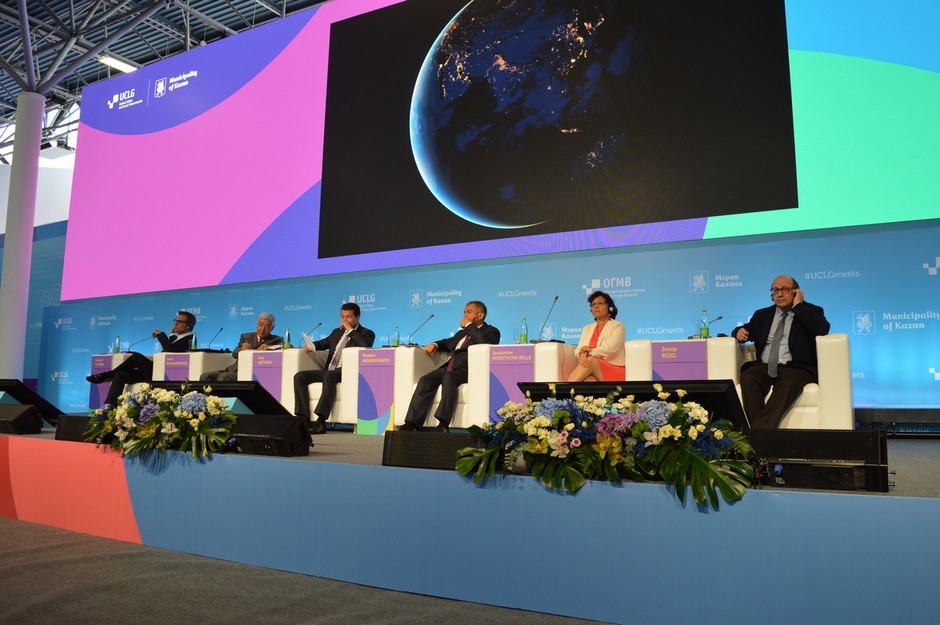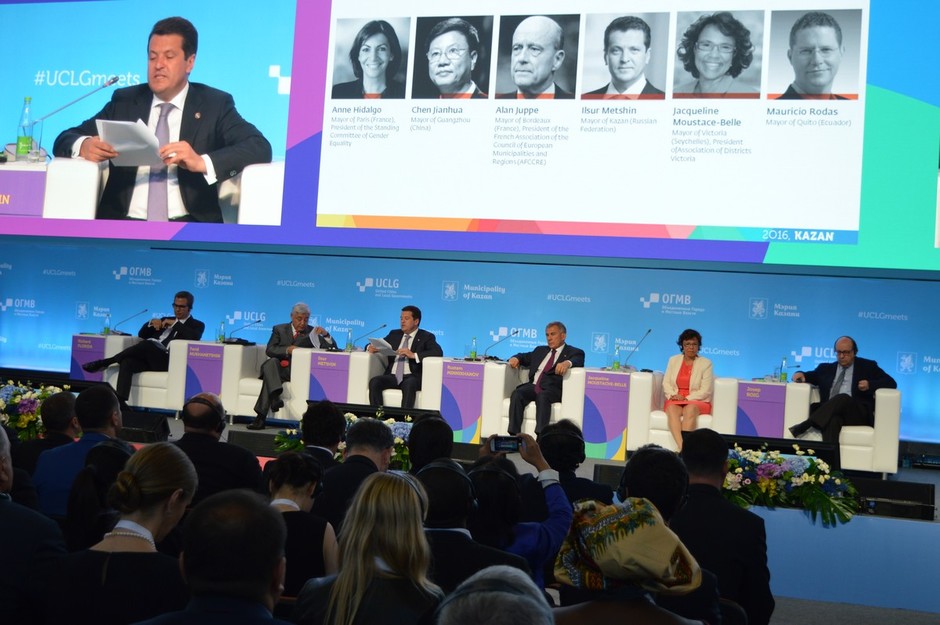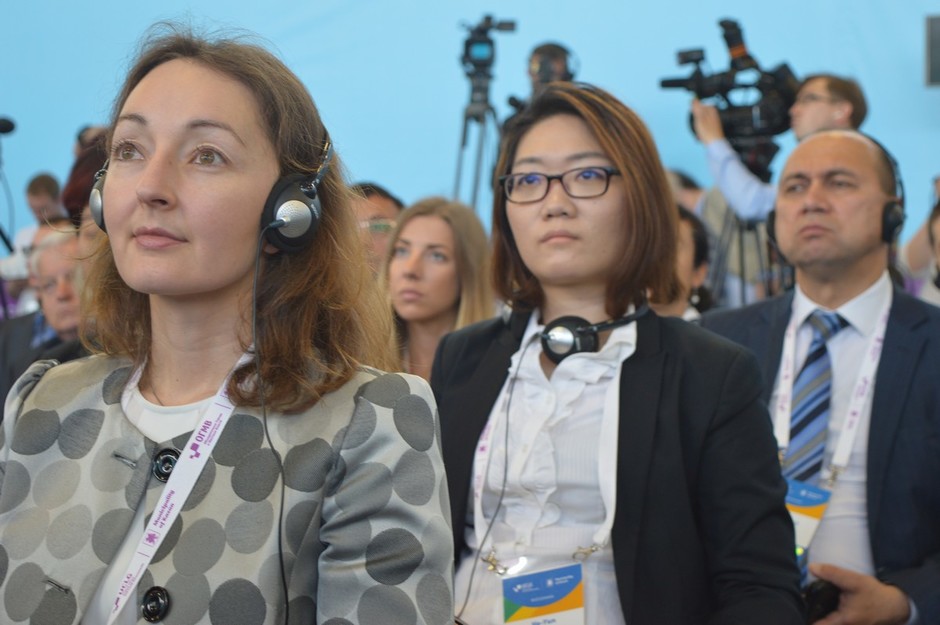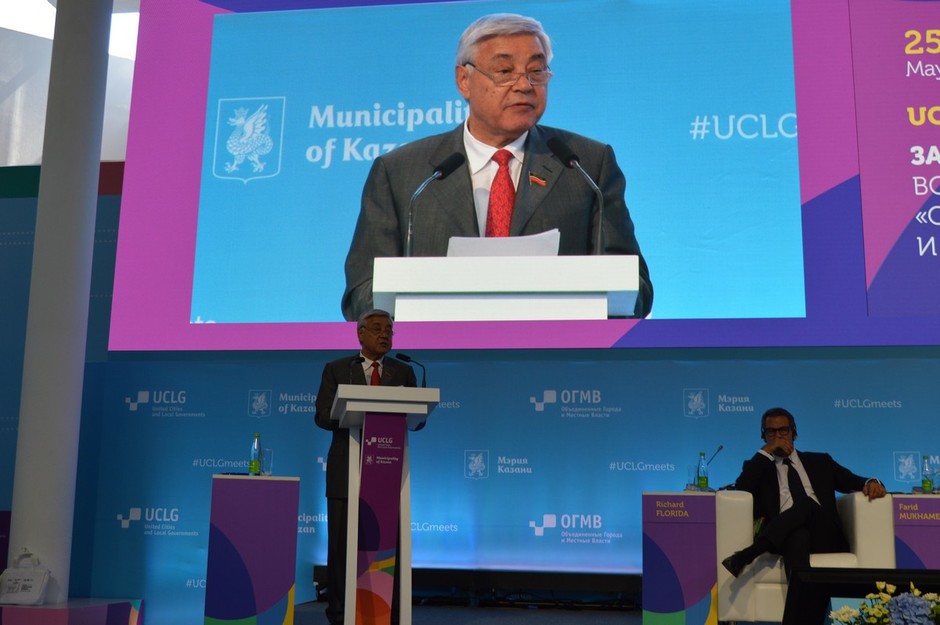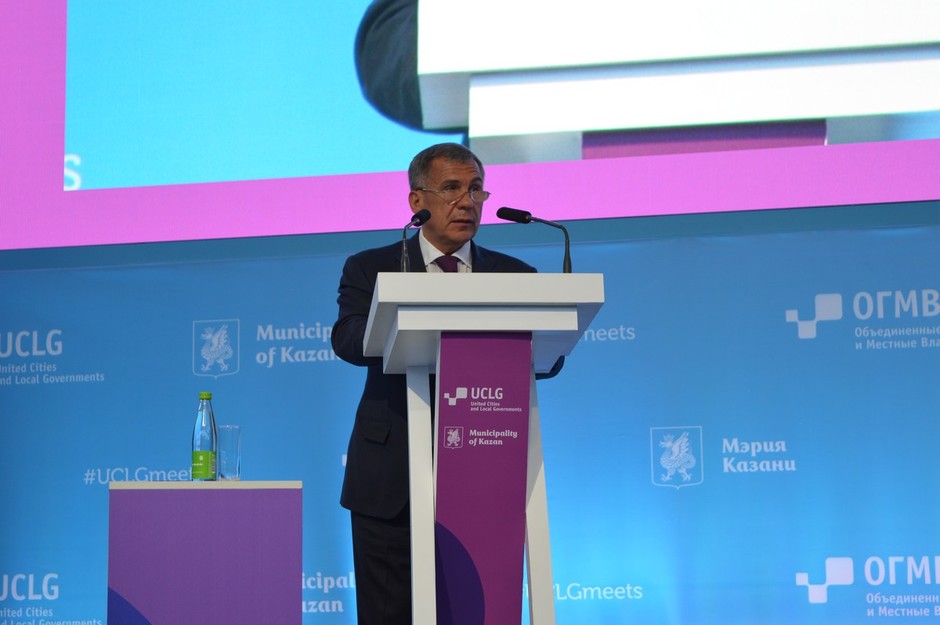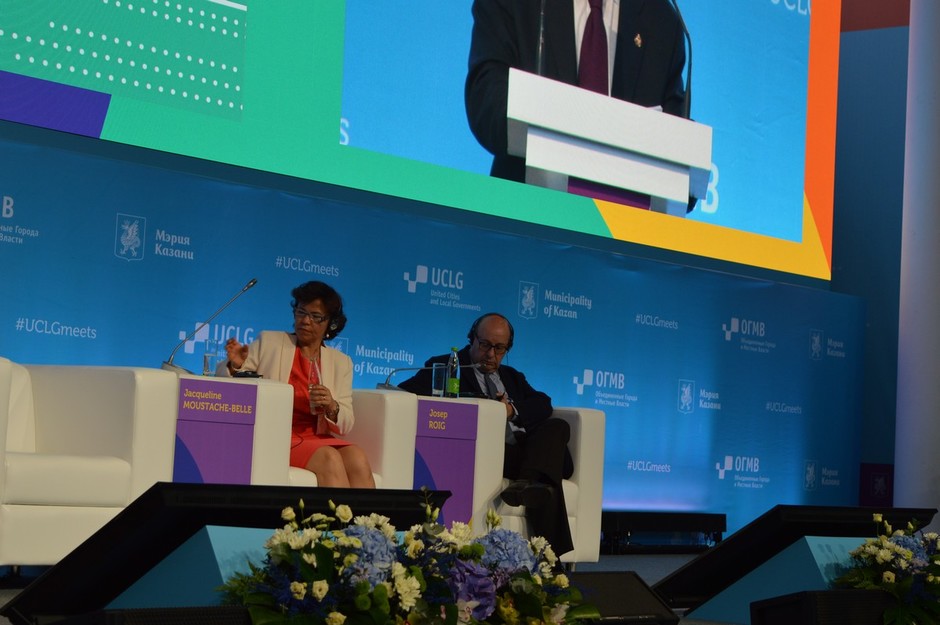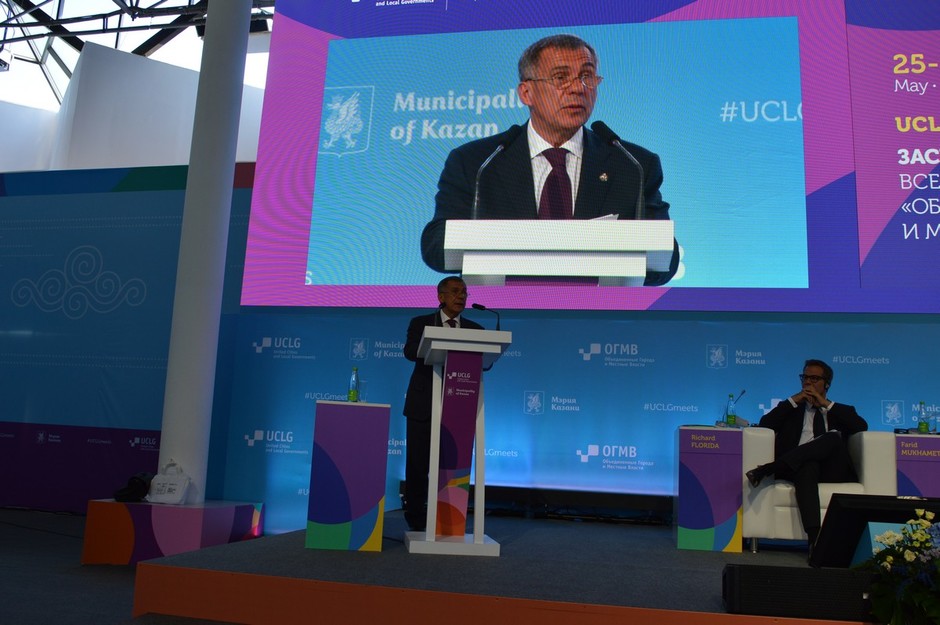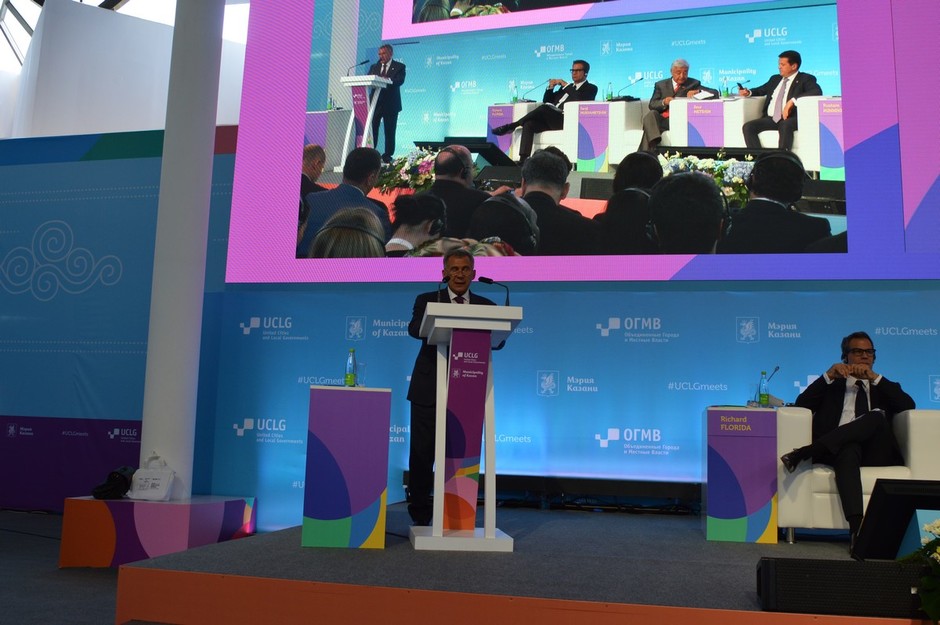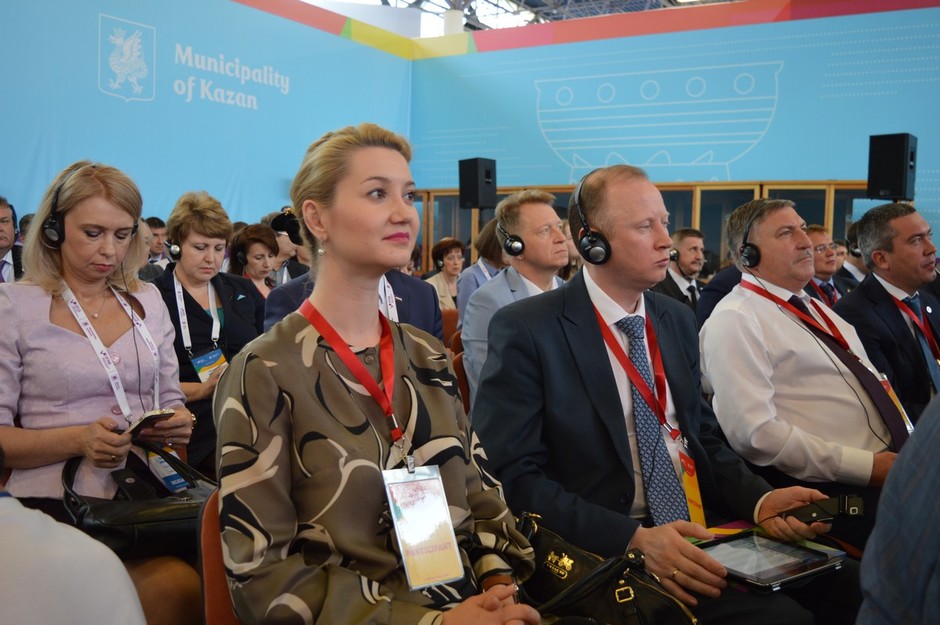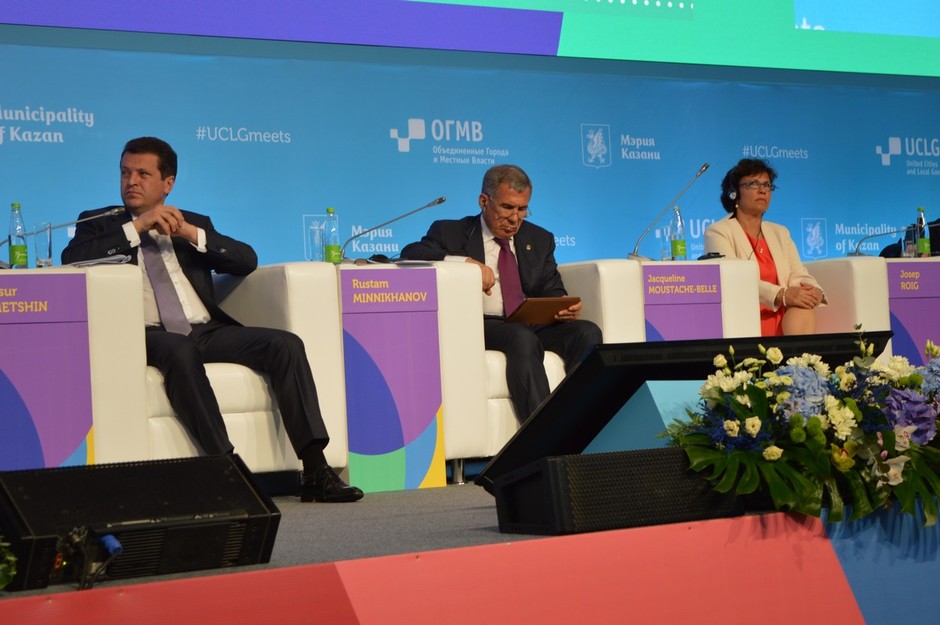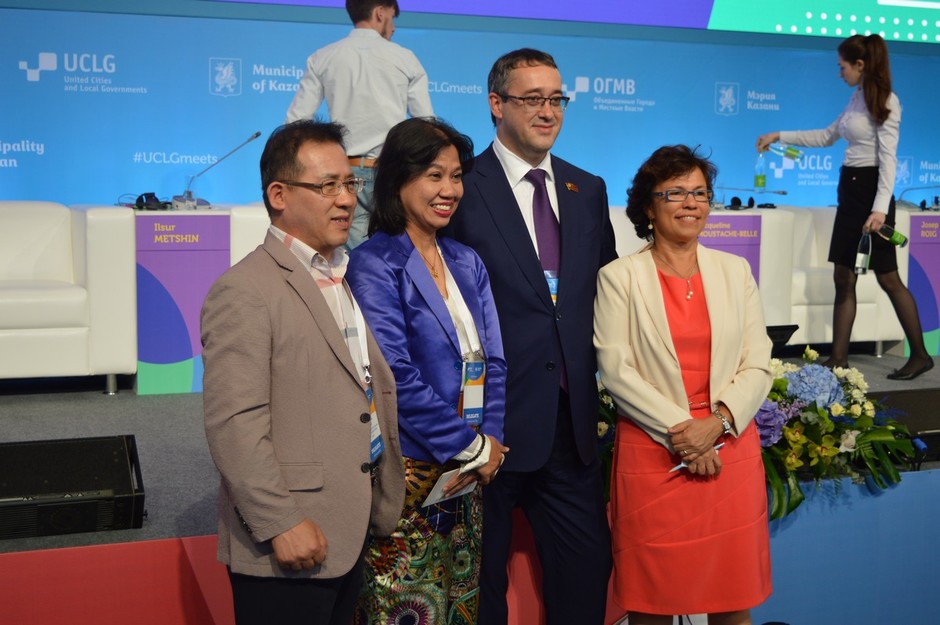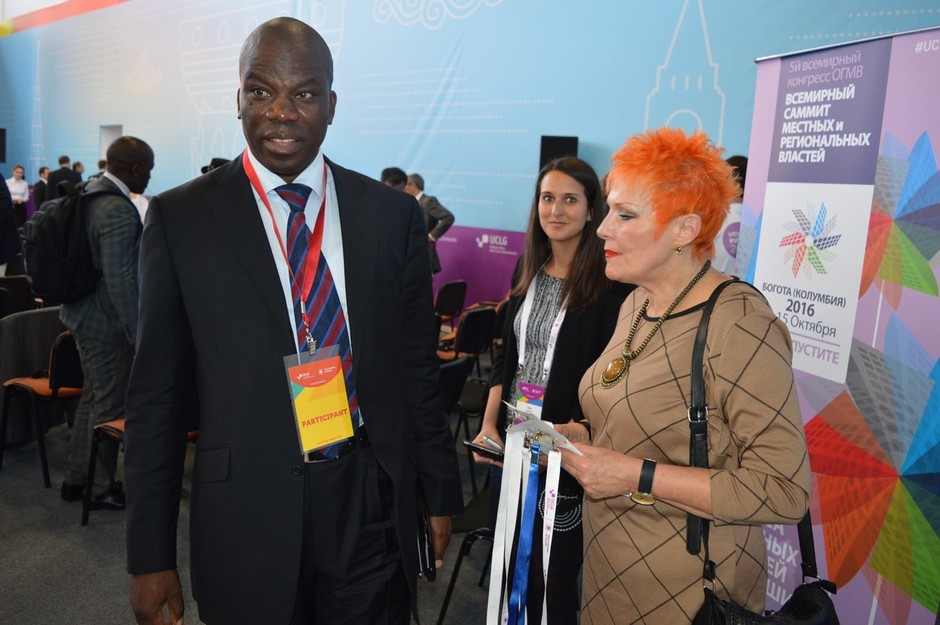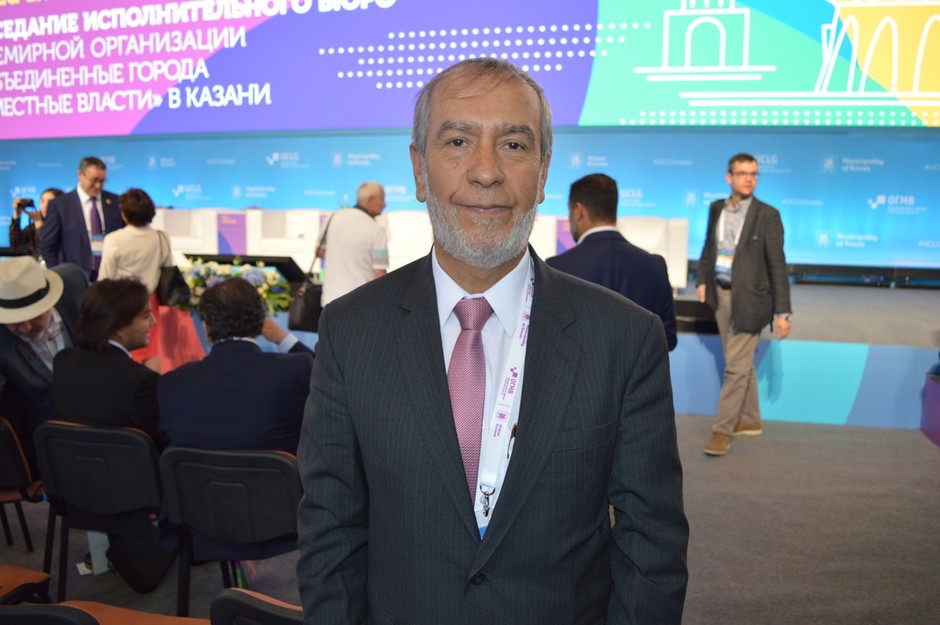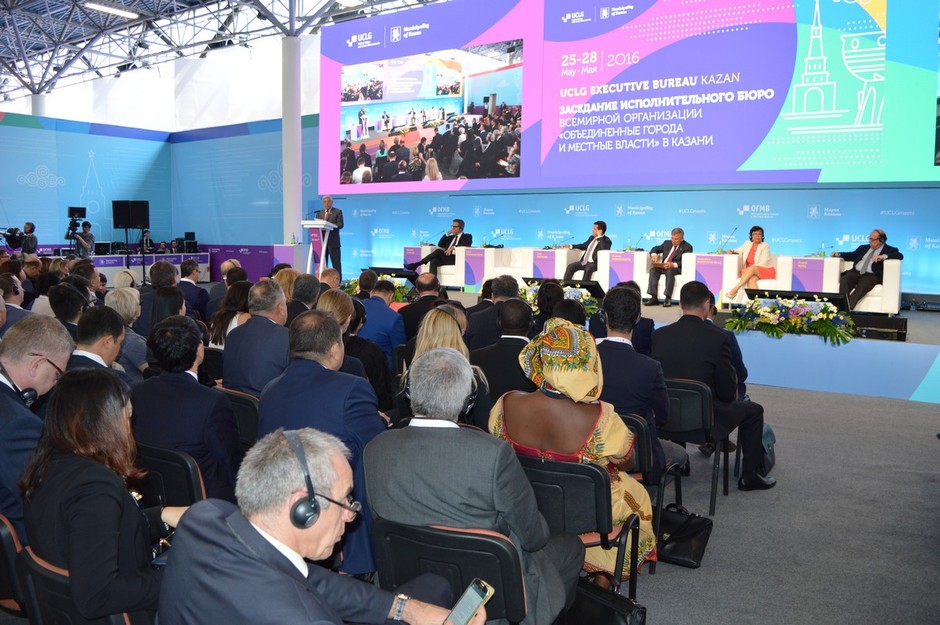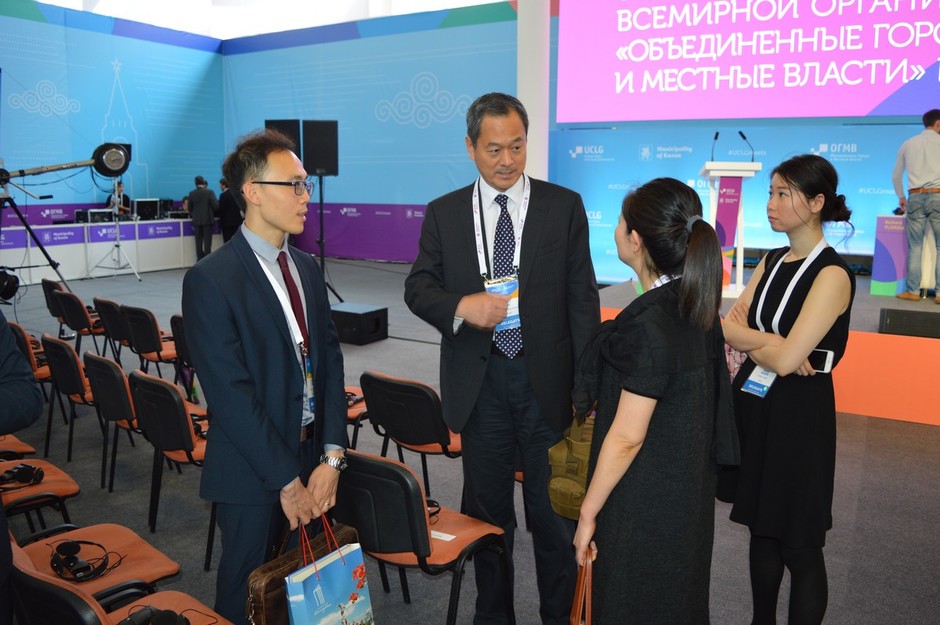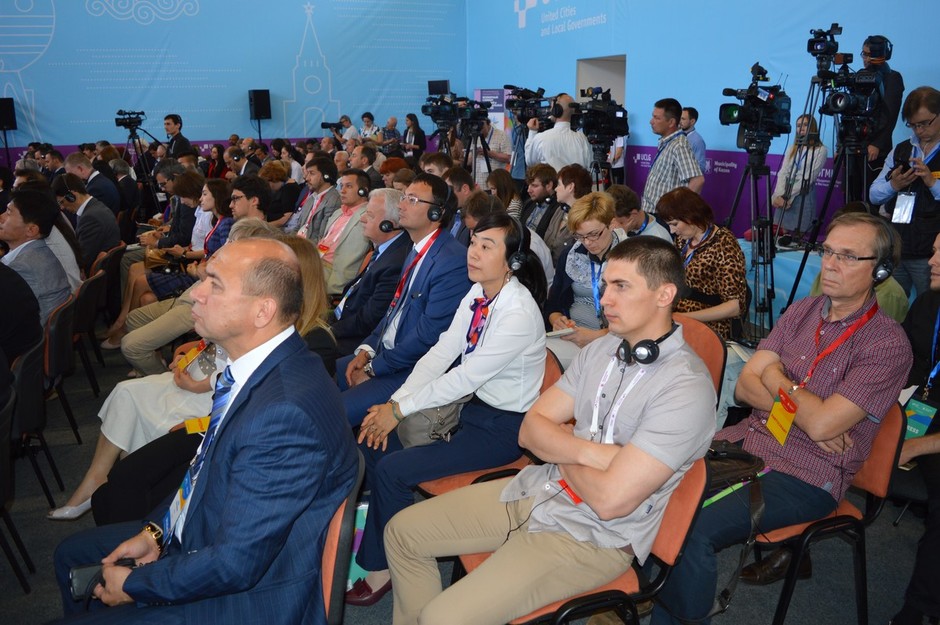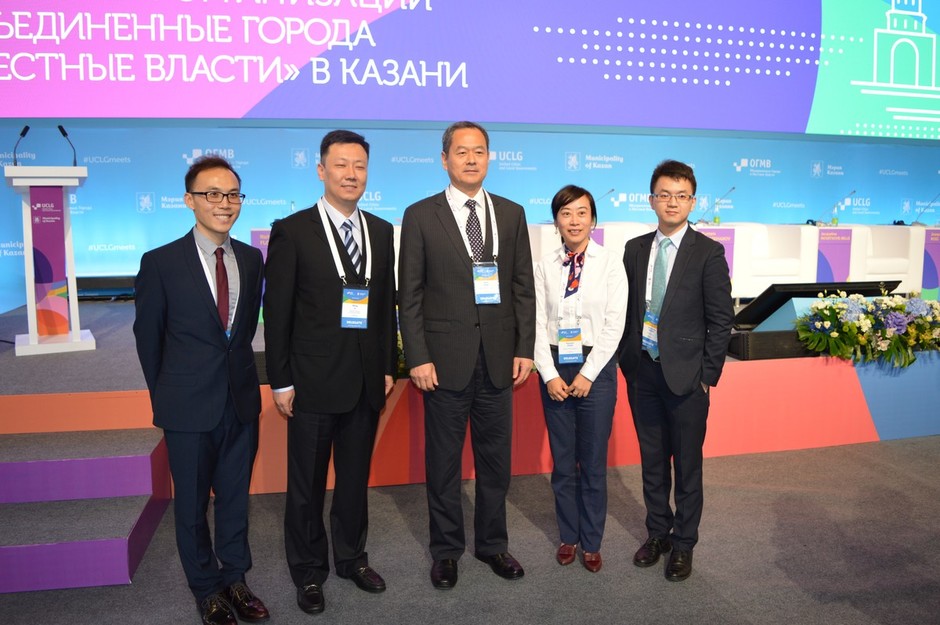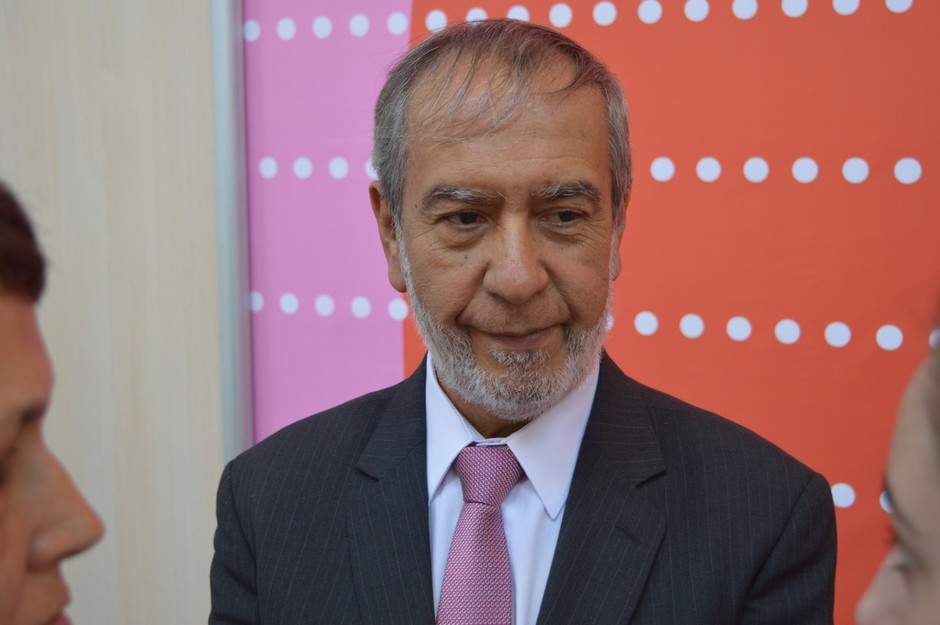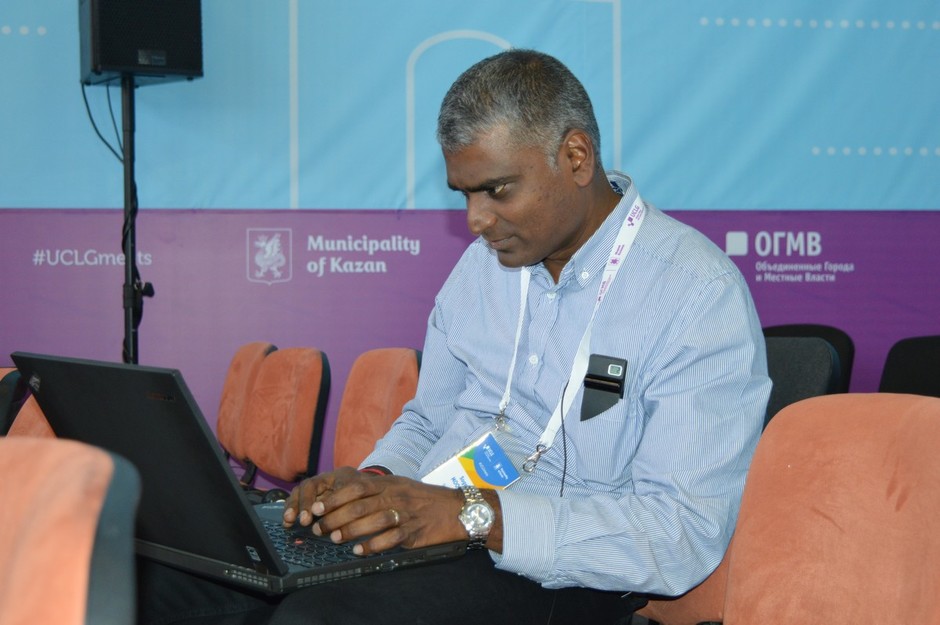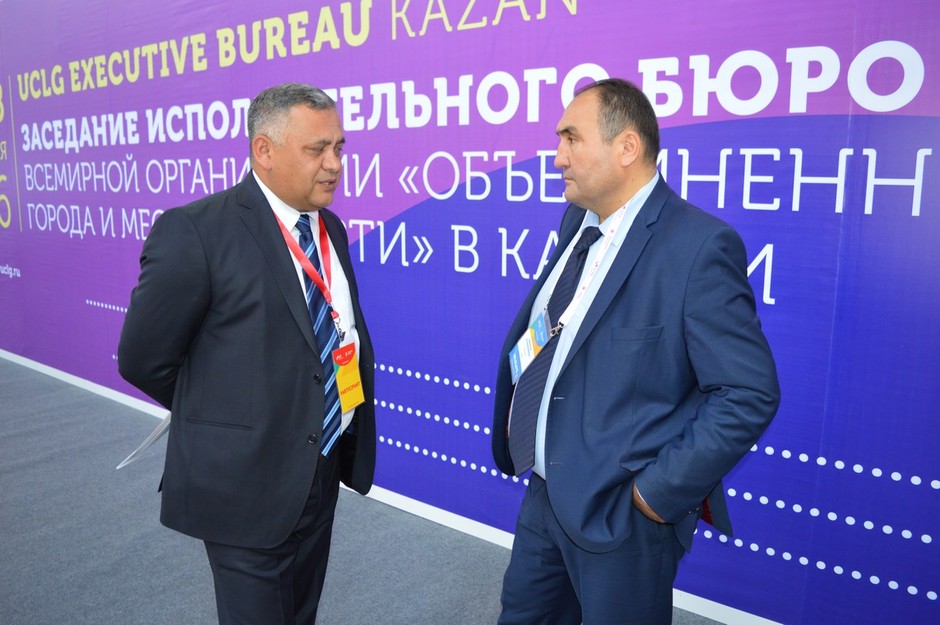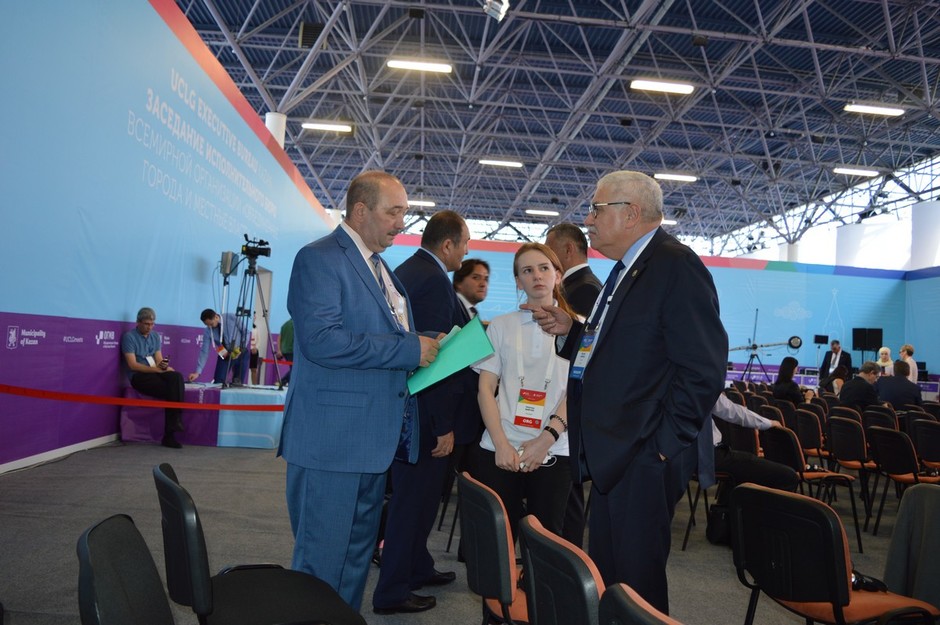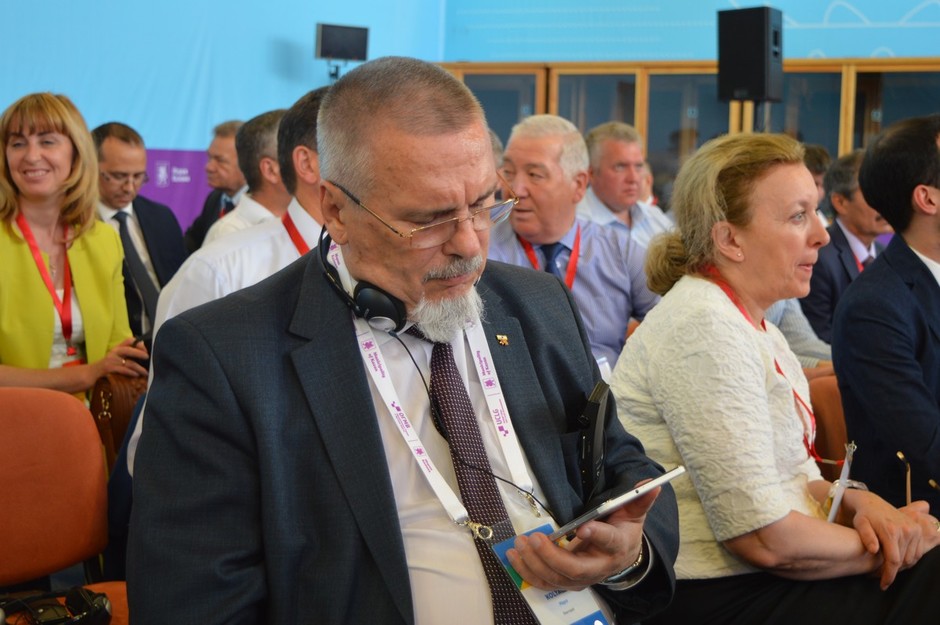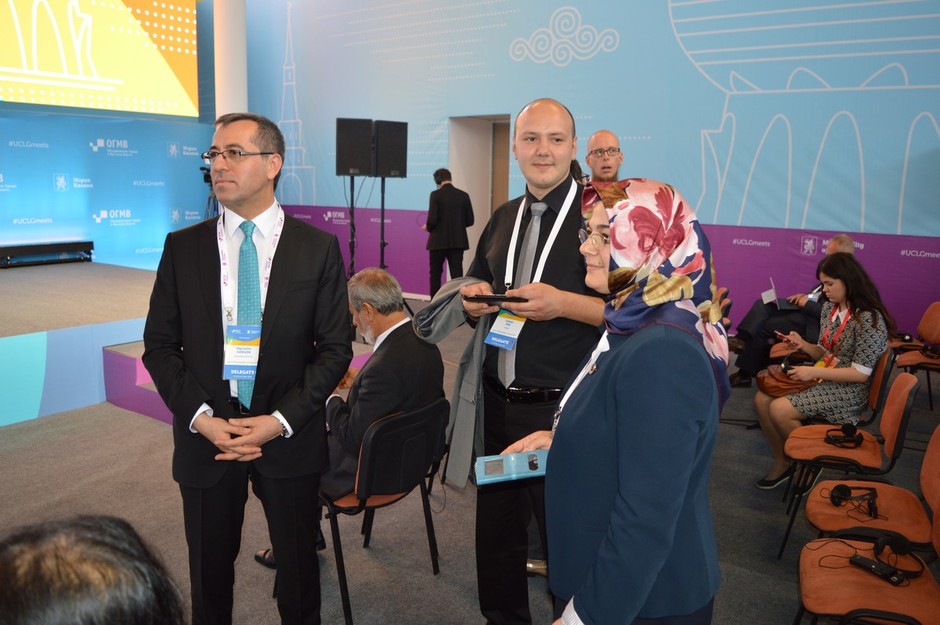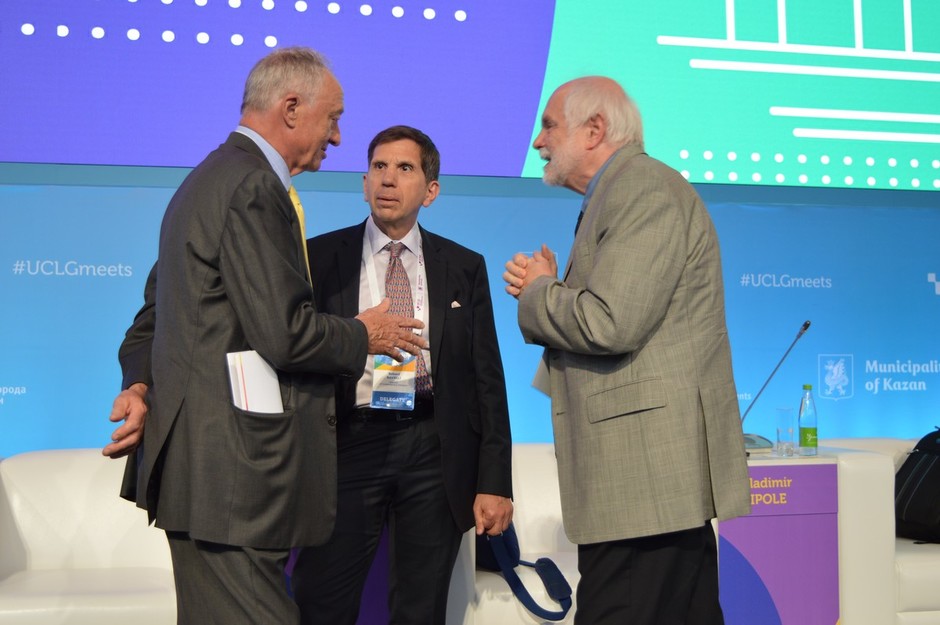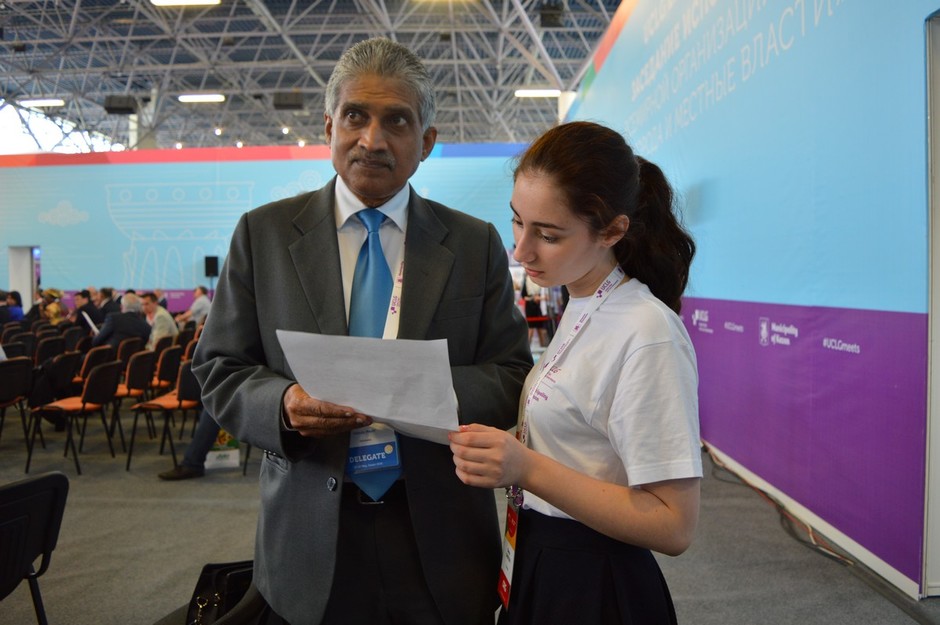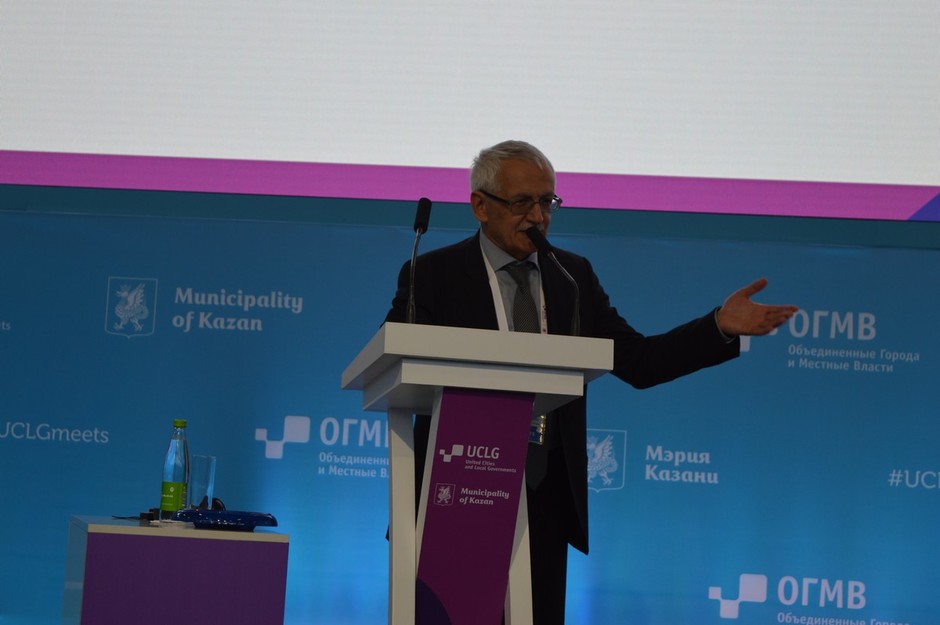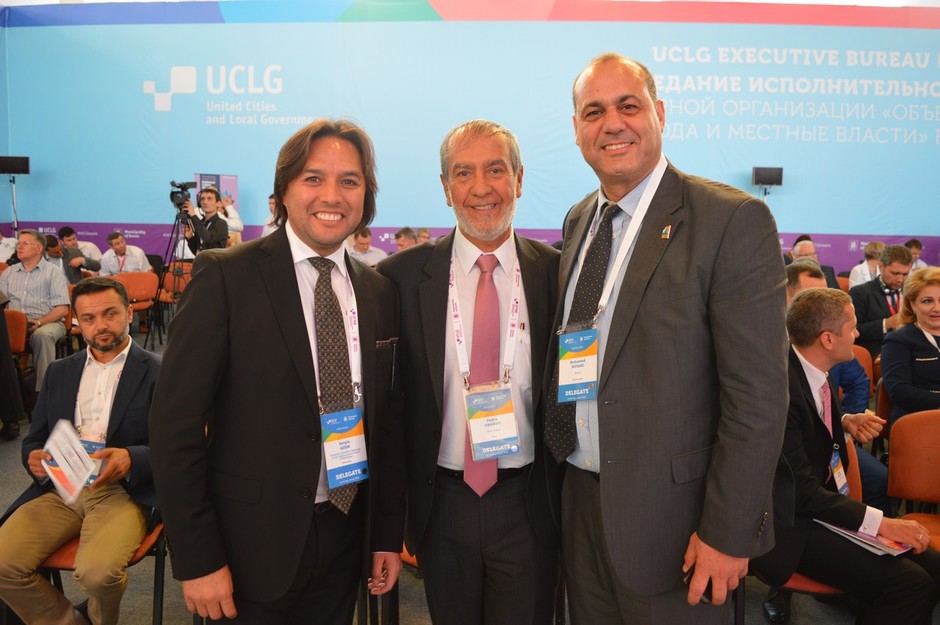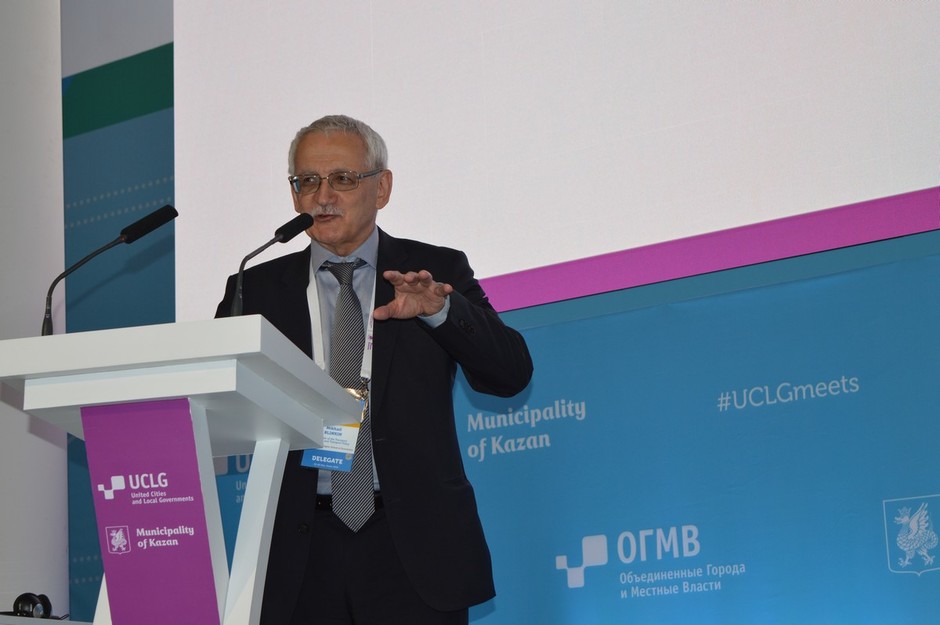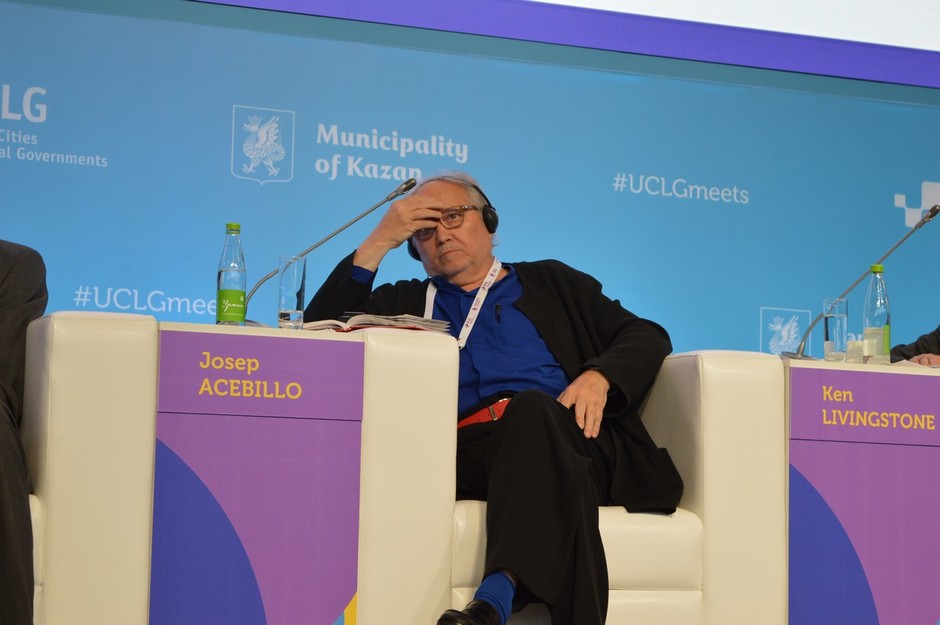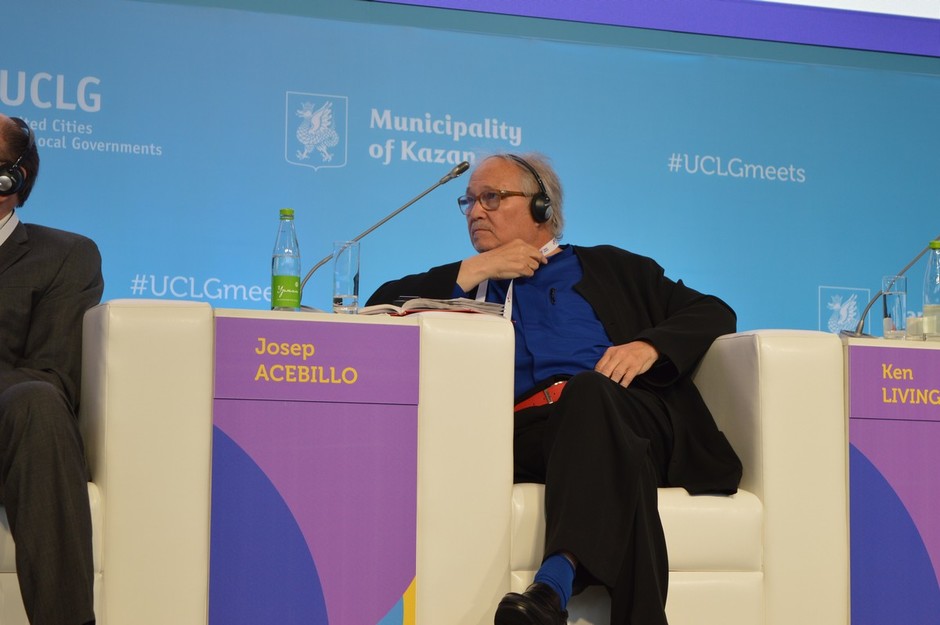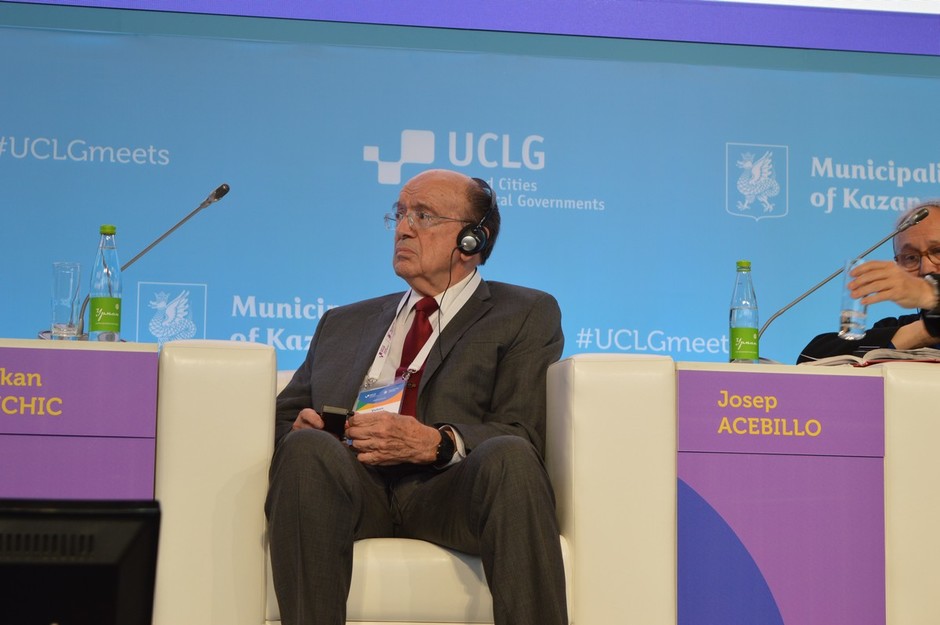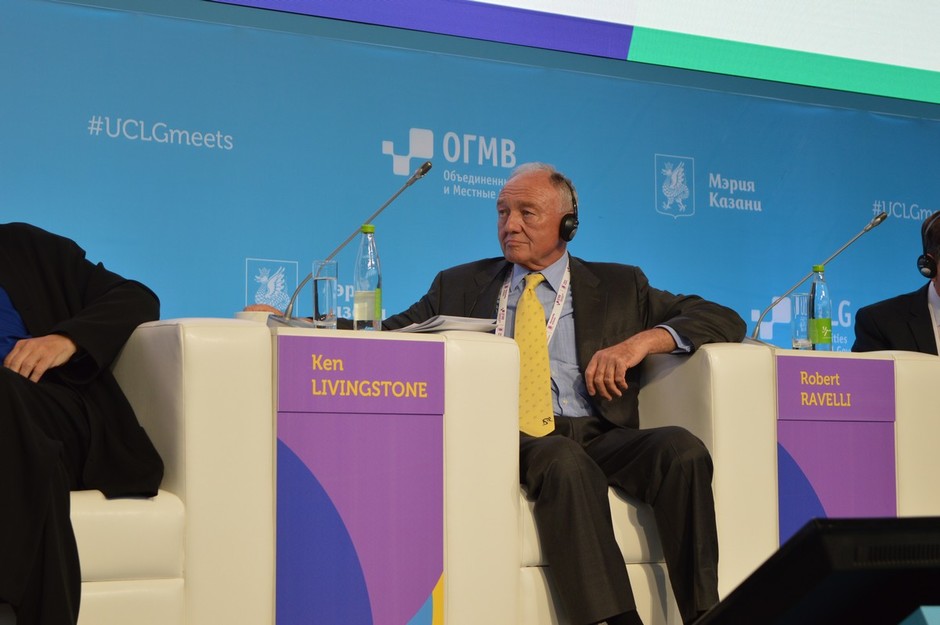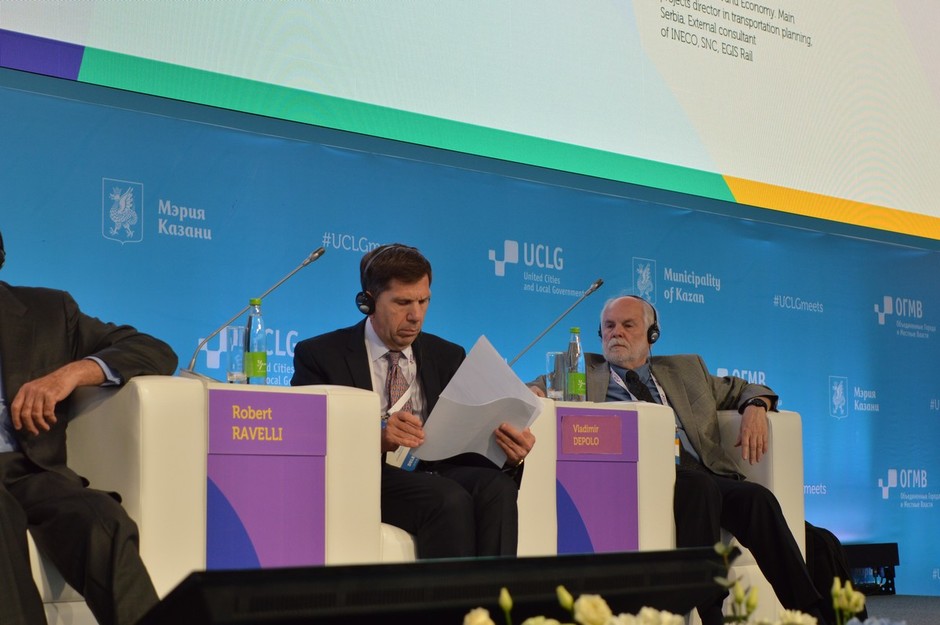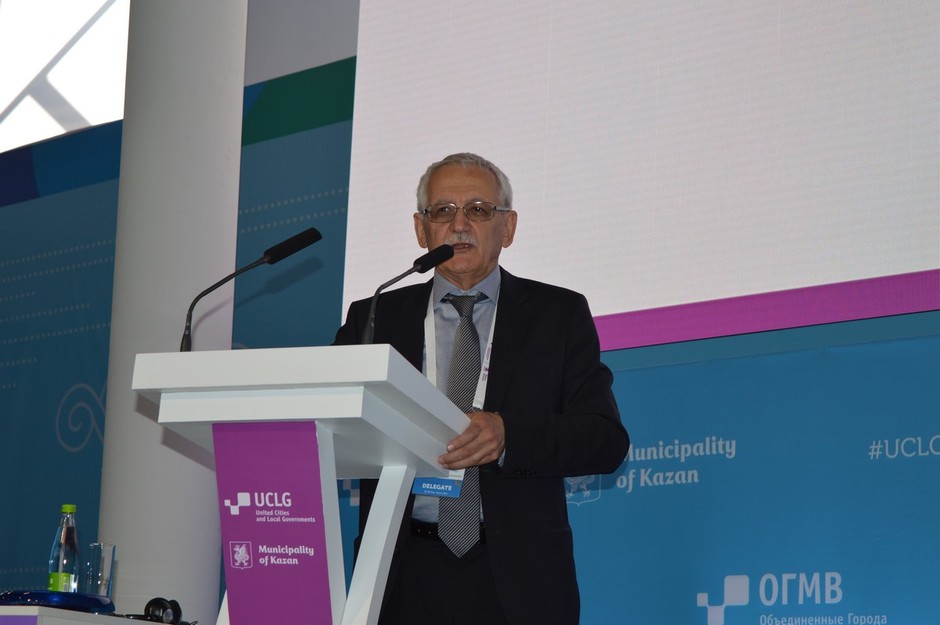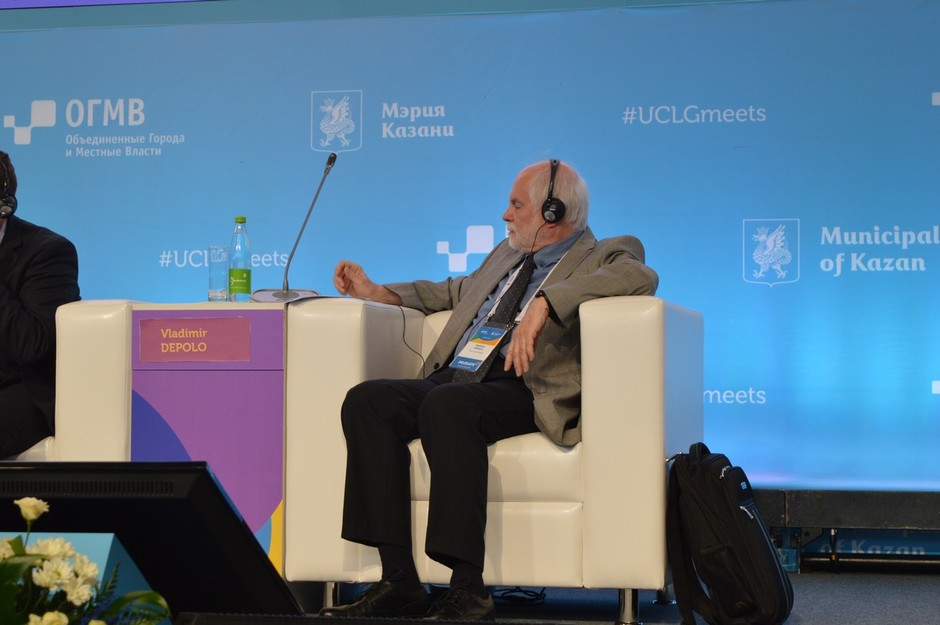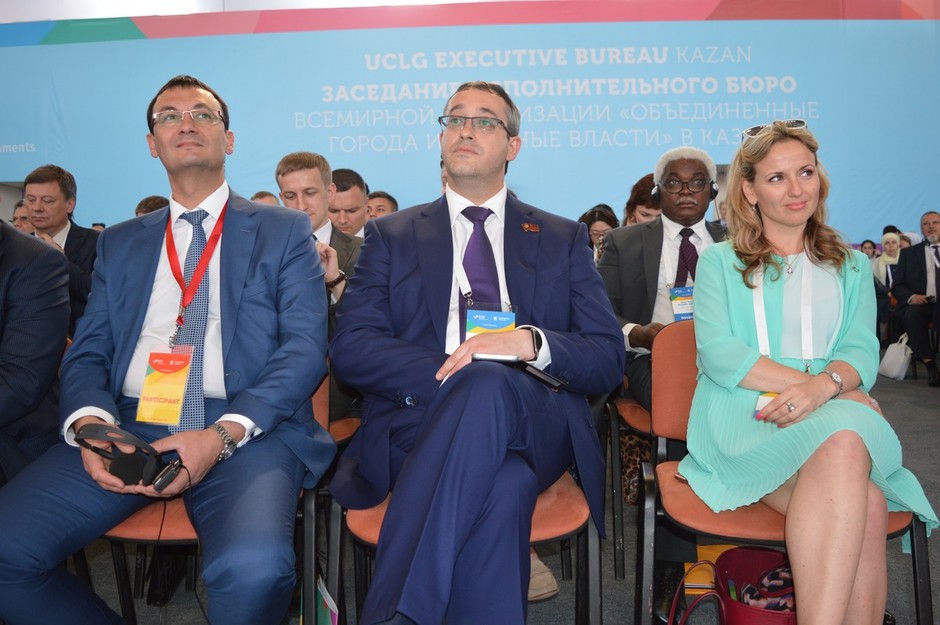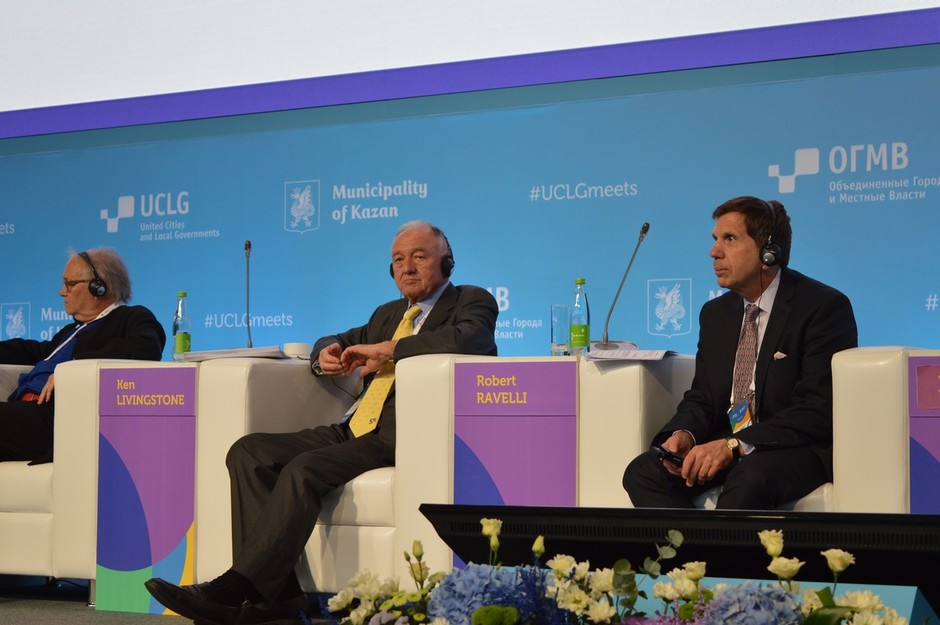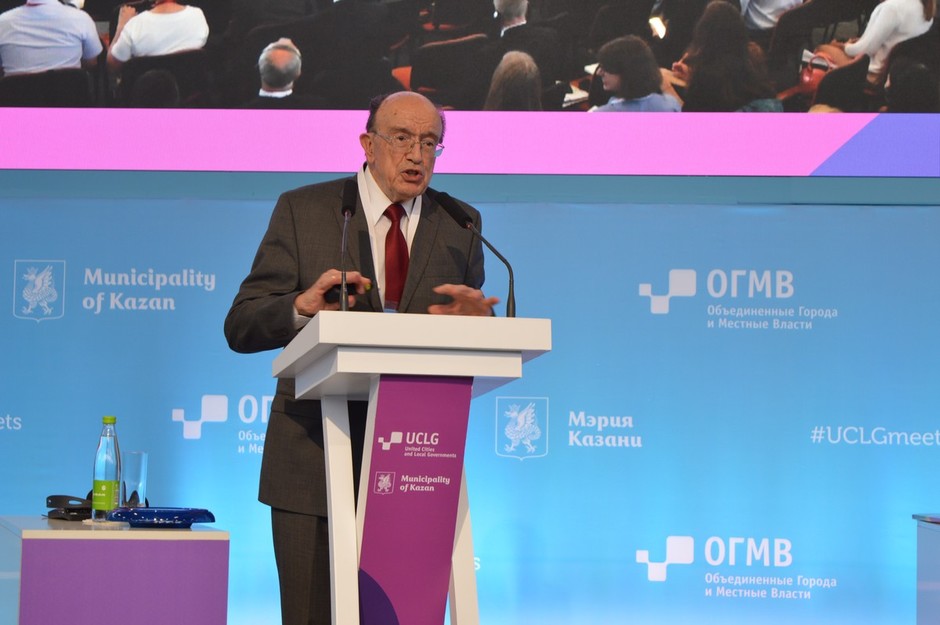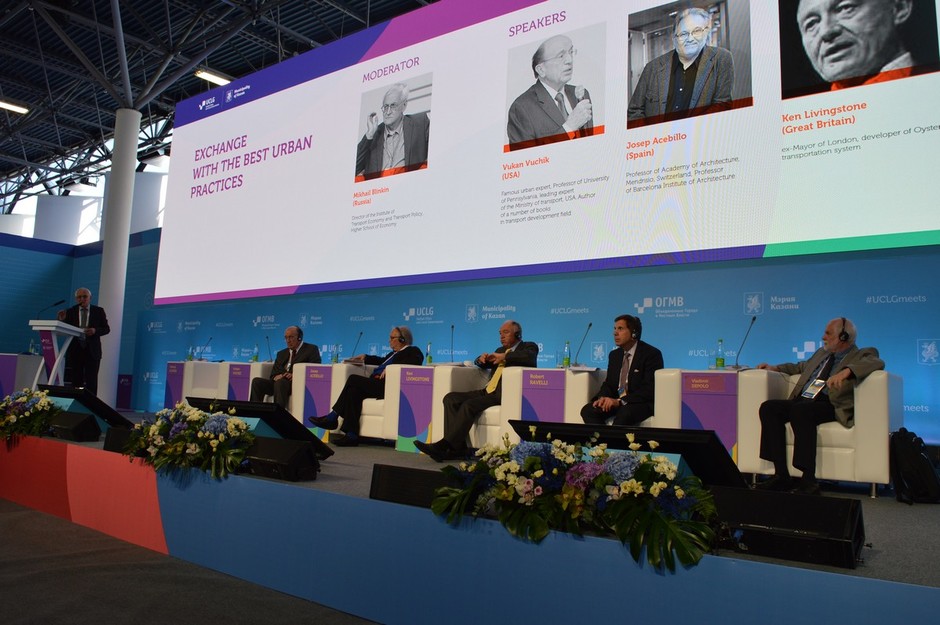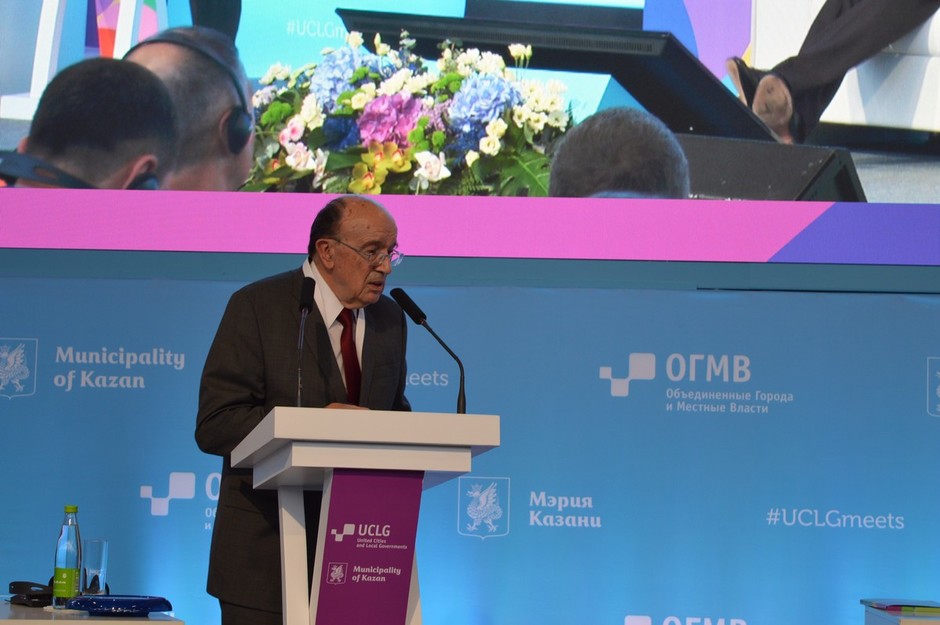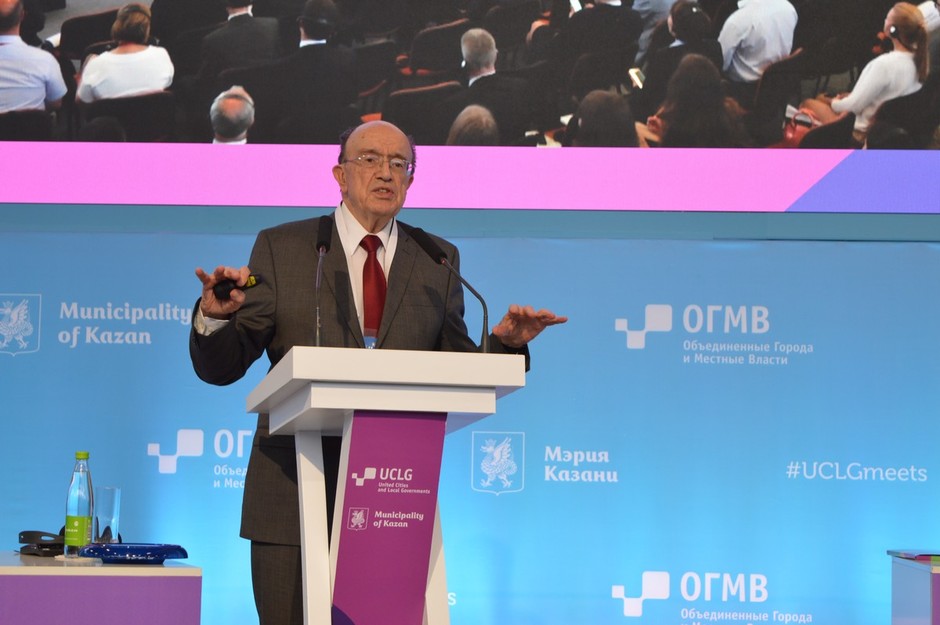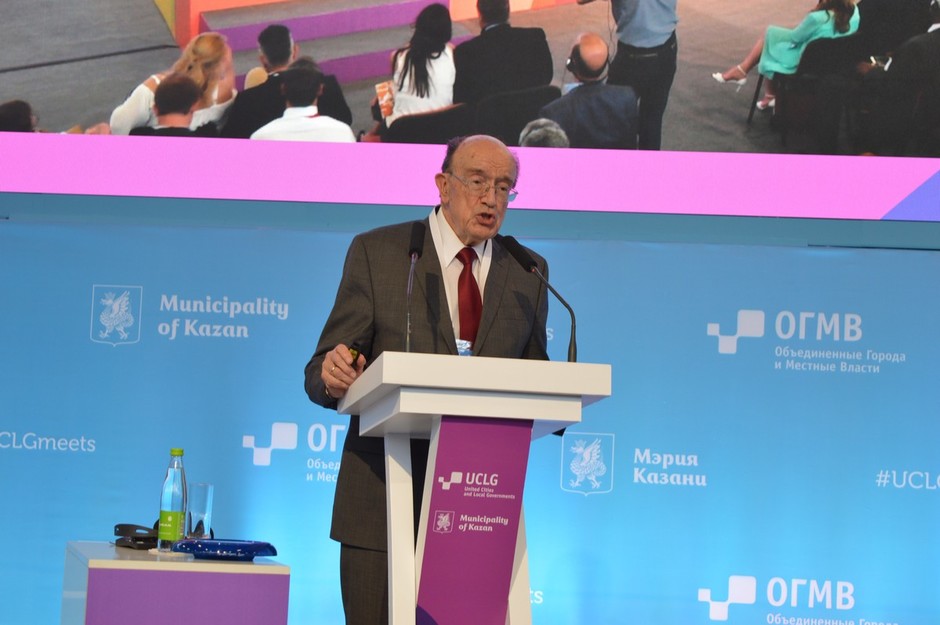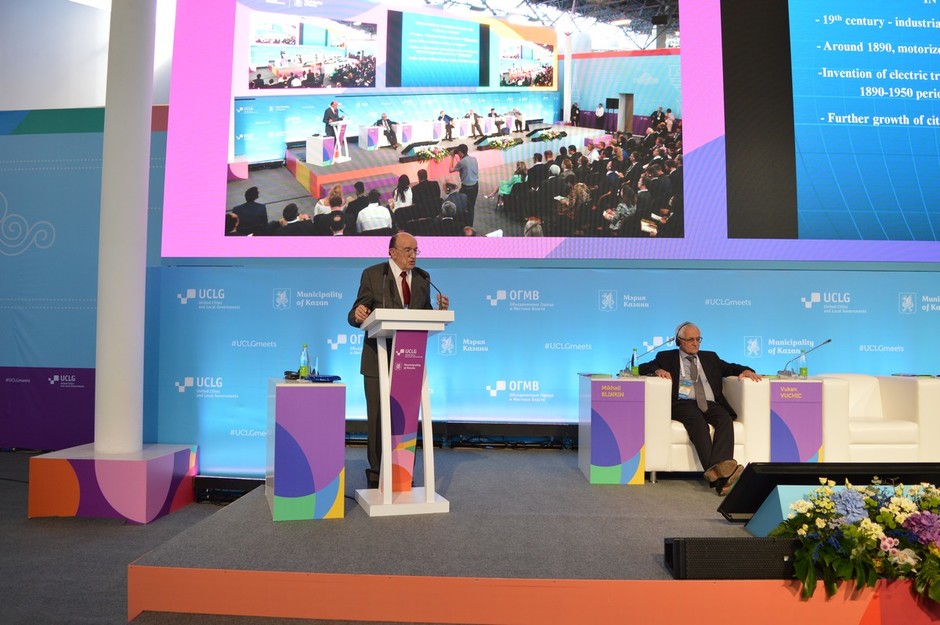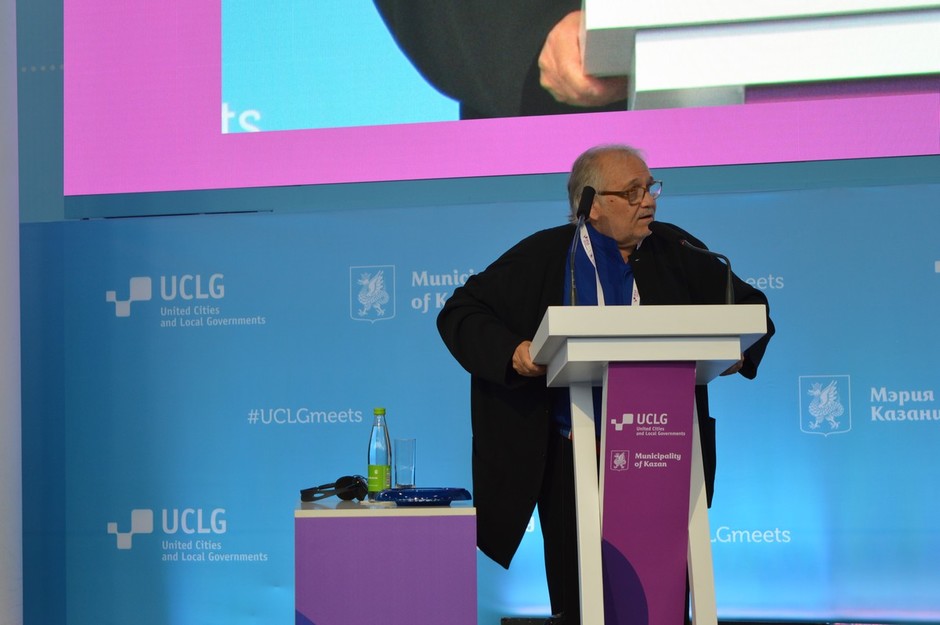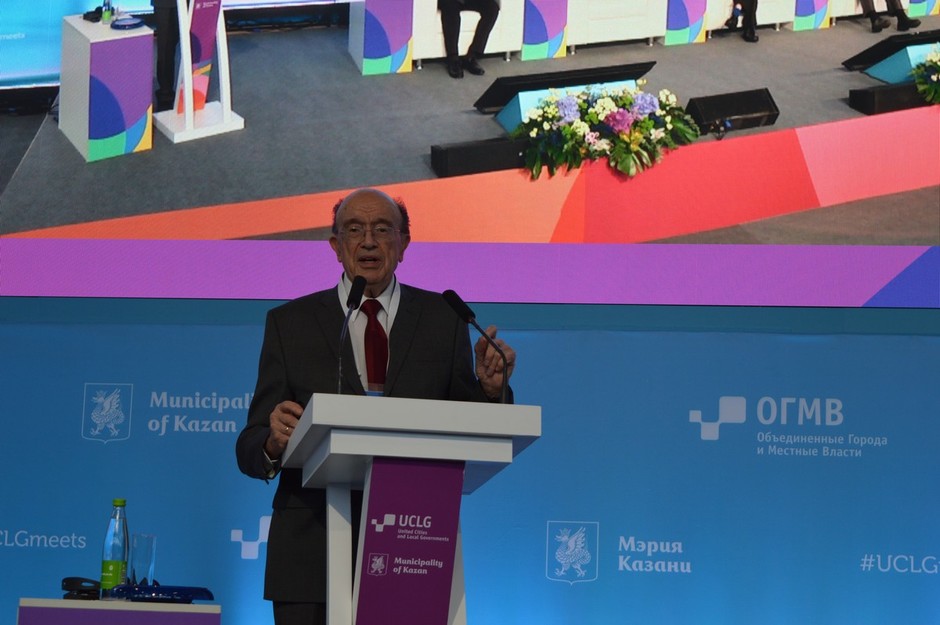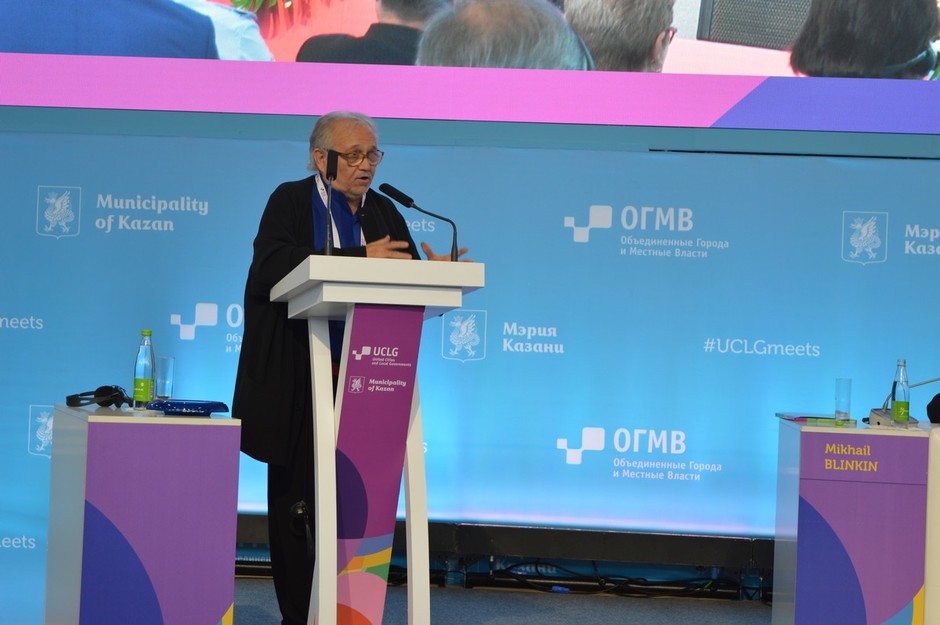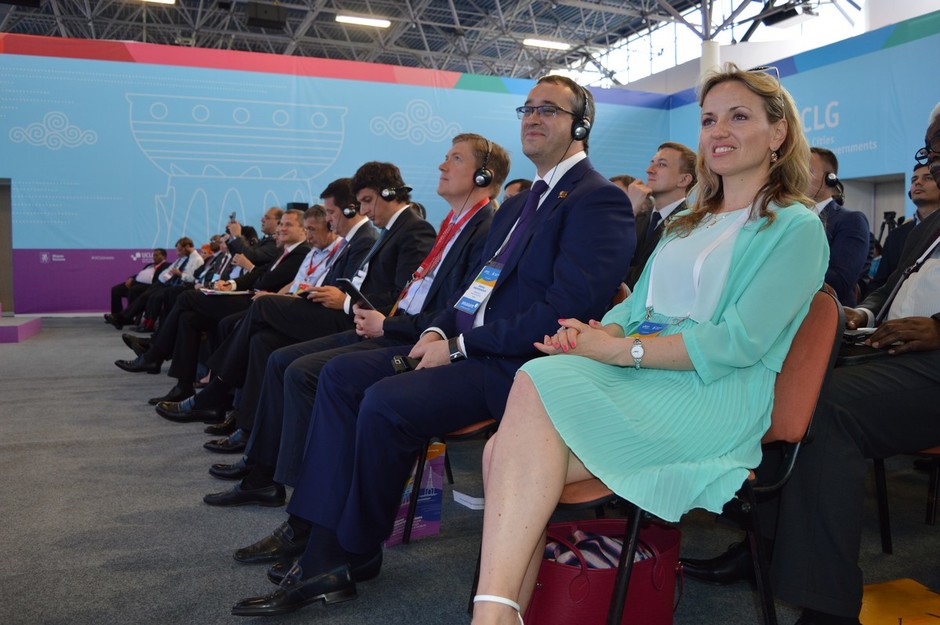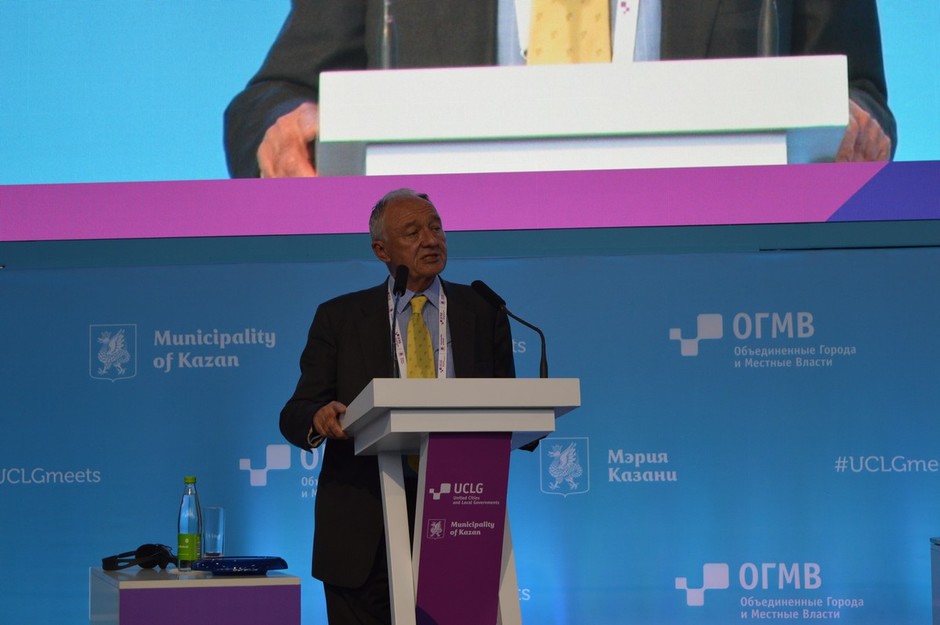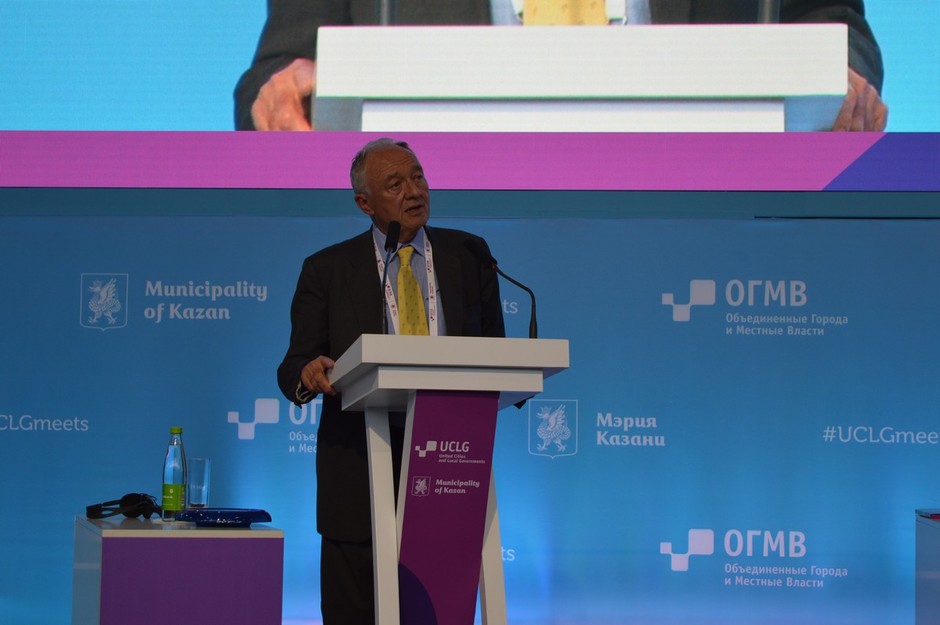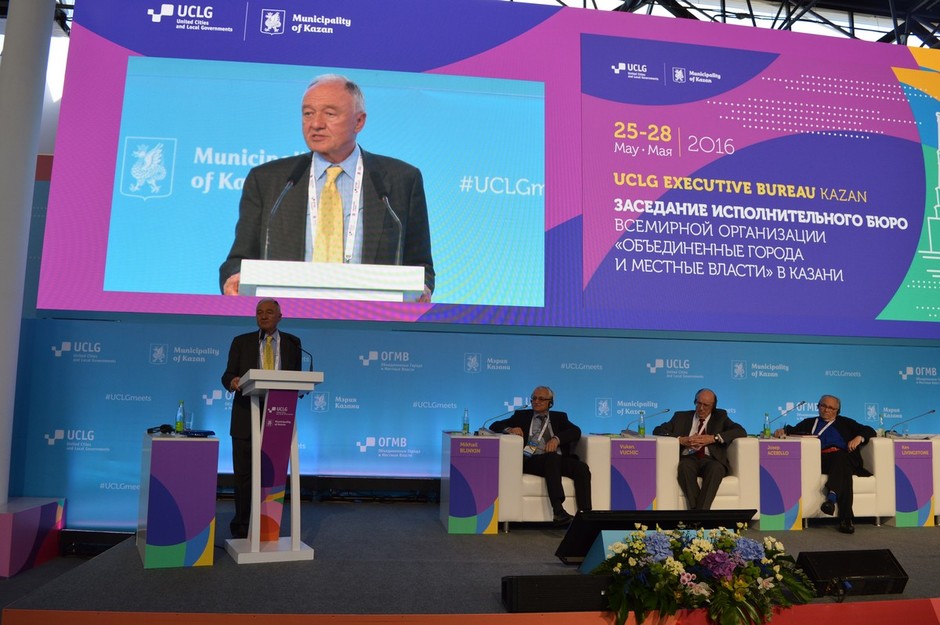Mikhail Blinkin, HSE: ‘Kazan has withstood terrible stress tests. The city handled them and even benefited’
The sitting of the organization United Cities and Local Government (UCLG): vision of the capital of Tatarstan from inside and outside
Last week Kazan was a platform for discussion of urban issues. Delegates from many municipalities around the world took part in the meeting of the organization United Cities and Local Government (UCLG). The first day was marked by the agenda of tolerance and transport urban geography. Of course, local municipal governments paid their attention to Kazan, in order to achieve positive feedback from the guests, and they have achieved it. However, they received the kindest words from… the religious leaders of the Republic. The corresponding of Realnoe Vremya attended the forum.
Love, peace and harmony
At the meeting of the Executive Bureau of the World Organization United Cities and Local Governments (UCLG), the agenda was devoted to two main issues: peaceful interethnic and interreligious coexistence in the cities and transport infrastructure in the megalopolises.
'Having arrived to Kazan, I asked here: 'What can I see in your city and take with me?' And the answer was: 'Tolerance',' started the meeting the moderator of the first discussion platform Shipra Narang Suri (India), the doctor-sociologist of the York University. So she set the tone for further conversation. By the way, the discussion platform was called: 'Living together'.
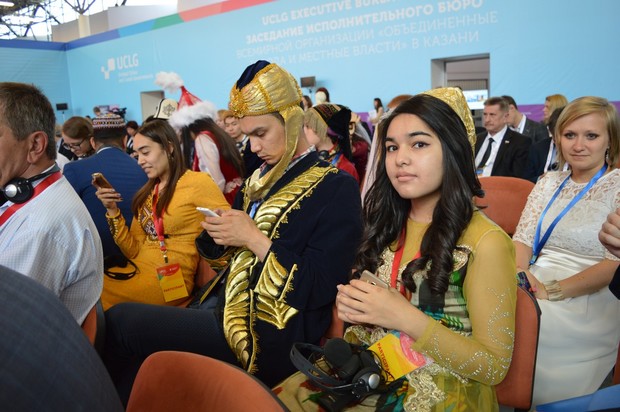
It is noteworthy that the organizers have thoroughly prepared for this conversation. In the hall there were guys and girls from CIS countries dressed in their national costumes. During the break, they took selfies and photographed with the participants of the forum. In the first row there were the main representatives of 'peaceful coexistence' – the heads of religious communities of Tatarstan – the mufti Kamil Samigullin, the metropolitan Feofan (Ashurkov), the rabbi Yitzhak Gorelik and a Catholic priest Diogenes Urkiza. Almost every speaker noted the good neighborhood of the representatives of different faiths.
Trends of the East
The Secretary General of the European section of UCLG Frederic Vallier (Belgium) said that among the problems that Europe is experiencing, the radicalization of youth plays a significant role. And due to the influx of refugees (another issue), radical views have only intensified.
'In Europe the second and third generations of immigrants from Muslim countries have grown up,' said Vallier. 'The children were given good education, they were explained that the main value is tolerance and solidarity. However, some bear radical views and go to fight in Syria and Iraq. Where are the roots of this radicalization from? After all, Muslims in Europe do not support radical ideas.'
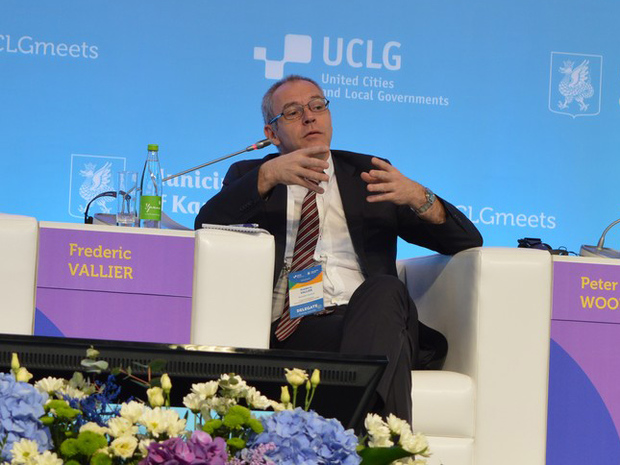
By the way, the radicalization of Europeans is not confined to the religious factor. Many young people are addicted to nationalist sentiments.
The role of cities, in the opinion of the Belgian, should be the creation of conditions for representatives of different communities to live together in peace and harmony. No social group should be infringed. The mechanisms should be developed individually for each municipality.
'The Chinese, Indians, Indonesians, Arabs are coming to our country in large amounts… And we keep saying: 'You're welcome!',' continued the conversation the ambassador of the Asia Pacific section of UCLG Peter Woods (Australia). 'I fully understand them. The 'old' country have been draining their resources for years, come to them with war, not give people to live normally at their homeland. And we have to accept them, respecting their worldview. Just respect them! Who created the refugees? They weren't created by themselves.'
According to Woods, the world is changing. The trend to the processes is set now not by West but East.
A word to religion
Then it was the turn of the representative of Kazan. Deputy Head of Kazan Executive Committee on Social Affairs Damir Fattakhov said (or to be more exact, read a sheet of paper) about how Russia is dealing with the refugee problem.
3 million Ukrainian citizens have come to our country in recent years. More than 100 thousand of them have already become citizens of the Russian Federation. Tatarstan, according to the official, also does not step aside, giving to thousands of refugees the places to stay and employment in Kazan and other cities.
Also, Fattakhov stated with pride that the city has formed a harmonious neighbourly relations. Then religious leaders included in the conversation.
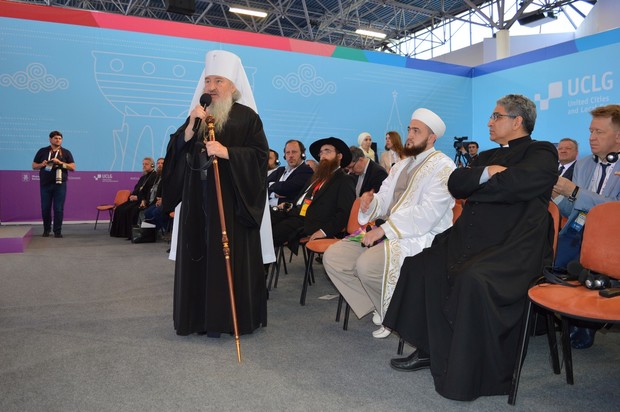
'I would say that Tatarstan could be a model for many problem regions,' said the metropolitan of Kazan and Tatarstan Feofan. 'Visit any municipal settlement, and you will see for yourself. There is no national or religious conflict. We should maintain it. Only dialogue, only mutual understanding can lead to a flourishing society.'
The chairperson of MRB RT, the mufti Kamil Samigullin also could not resist and added: 'Yes, we have different religious views. But we respect each other. We live in the same house, but each has its own apartment.'
The words of the metropolitan and the mufti were supported by the rabbi and the Catholic pastor. Religious teachers have contributed to the overall rhetoric.
Stress tests for Kazan
Also, during the meeting, there was a section 'Sustainable development of cities. The exchange of experience of the best urban practices'. It was devoted to transport urban geography.
The director of the Institute for Transport Economics and Transport Policy of the Higher School of Economics Mikhail Blinkin said that Kazan as a platform for such forum was not chosen randomly.
'This city has withstood absolutely terrible stress tests, connected with different events, when in recent years tens of thousands of people have come here. As an old experienced transport specialist I will say that the city has handled these stress tests and even benefited from them,' said the expert.
He noted that all the governors are facing a difficult task: to develop the megalopolis, preserving the historical heritage.
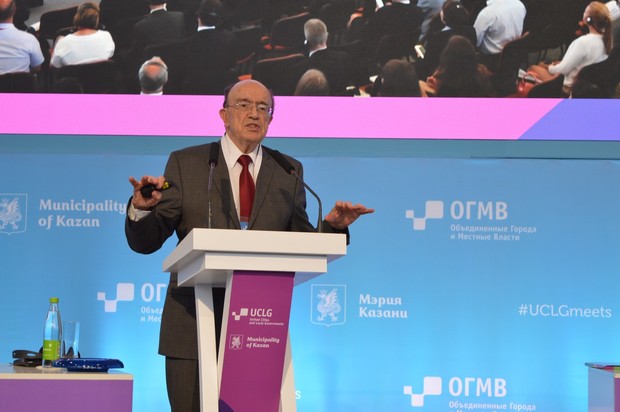
The famous Professor of the University of Pennsylvania (the USA) of Serbian origin Vukan R. Vuchic also praised the capital of Tatarstan. The city, according to him, quite successfully uses the mechanisms of integrating of various services in the solution of city problems. However, he urged the city authorities to keep pace with the needs of people. On order the city was convenient for residents and visitors, the urbanist advised to actively develop public transport and limit the use of private cars.
'Now when I will go with lectures around the world I will give Kazan as the best example in Russia on the understanding and resolution of urban issues,' concluded Vuchic.
If he had stayed in the city more than two days, for example a month or two, if he had looked into the yards and talked with the citizens, he probably would not be so generous with kind words.
The problems of a city – the problem for a country
Since the 1960s, in the world there has been a dramatic increase in the use of personal transport. Then many cities started to extend the road network, to create additional parking. However, according to the experts, such policy is wrong. We should change the concept of urban development towards the creation of infrastructure for pedestrians.
Besides, the problems of the city are not confined to roads and transport only. As Josep Acebillo (Spain), Professor at the Academy of Architecture in Mendrisio (Switzerland), Kazan is experiencing a big demographic problem. The birth rate in the city is 'catastrophically low'. In comparison with other cities of the world, the living standards of the population is also low. However, he added that all Russia is experiencing these problems.
'Though the country abandoned the communist system, the city has received a great Soviet legacy over the decades. Now the industry in the city is not as it was before, the number of private cars has increased. The technologies of megalopolis are changing completely,' said the Professor.
He asked to pay attention to the problems of socially unprotected segments of the population, especially the elderly.
'A city is a very complex system. Only changing the approaches, it is possible to solve many of the problems,' summed up Acebillo.
